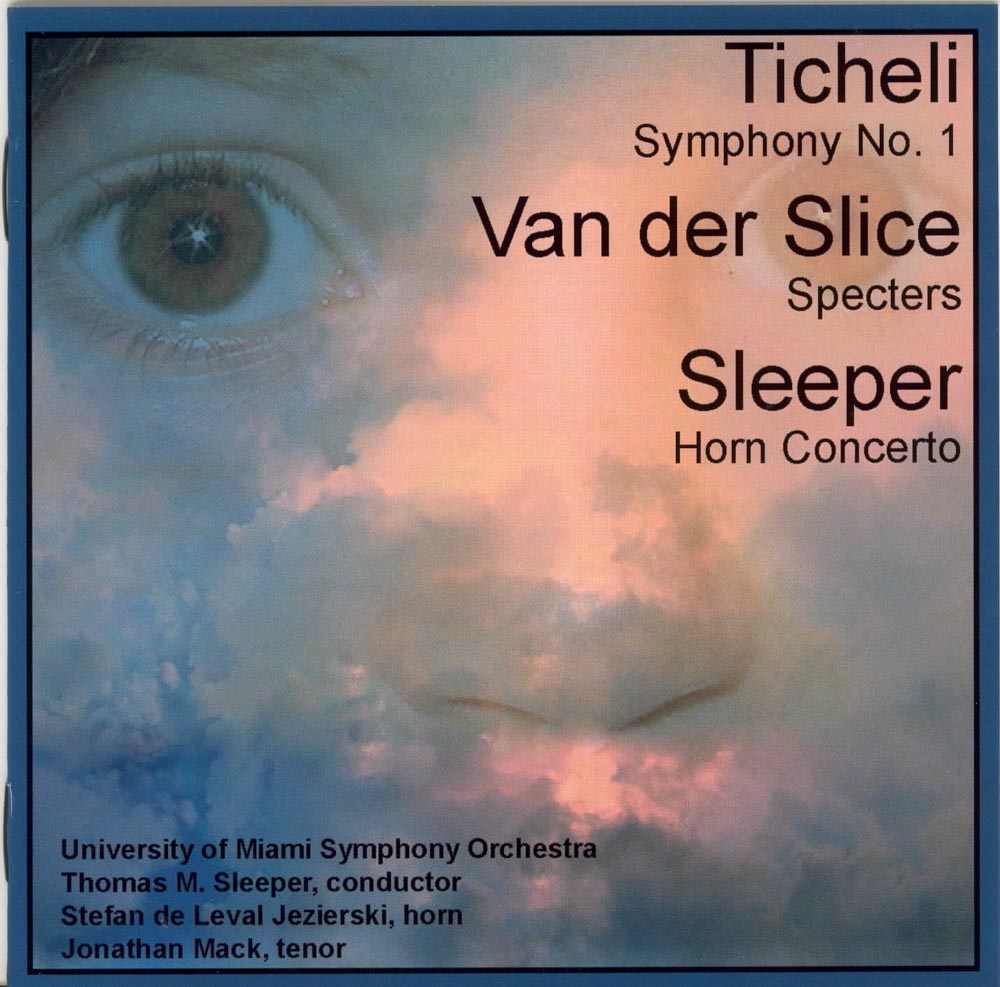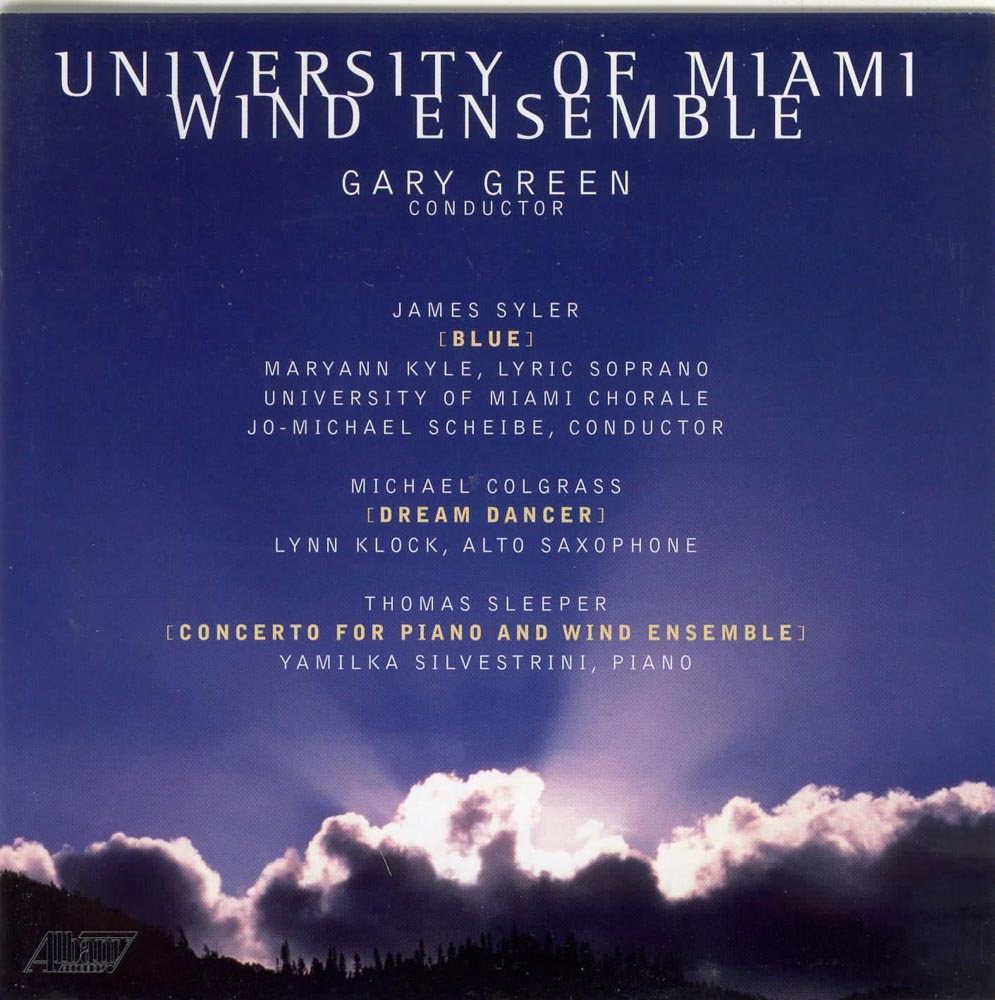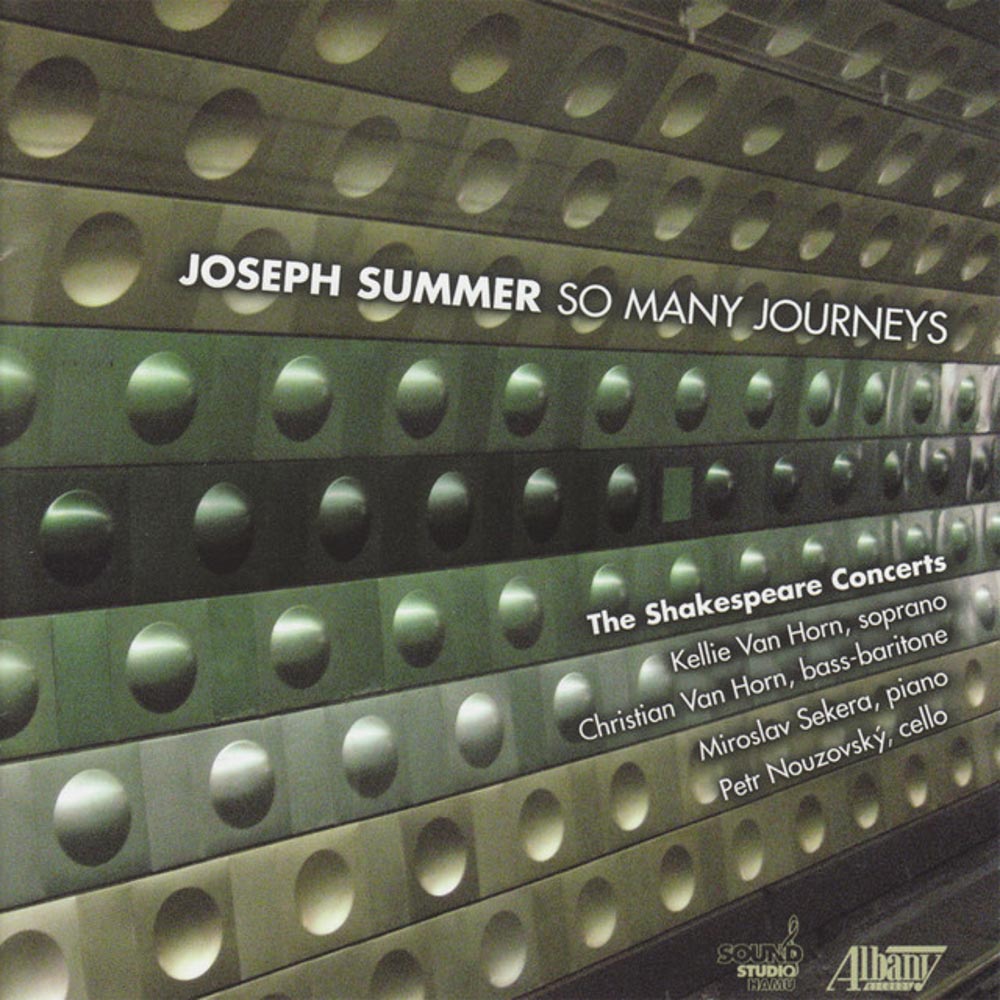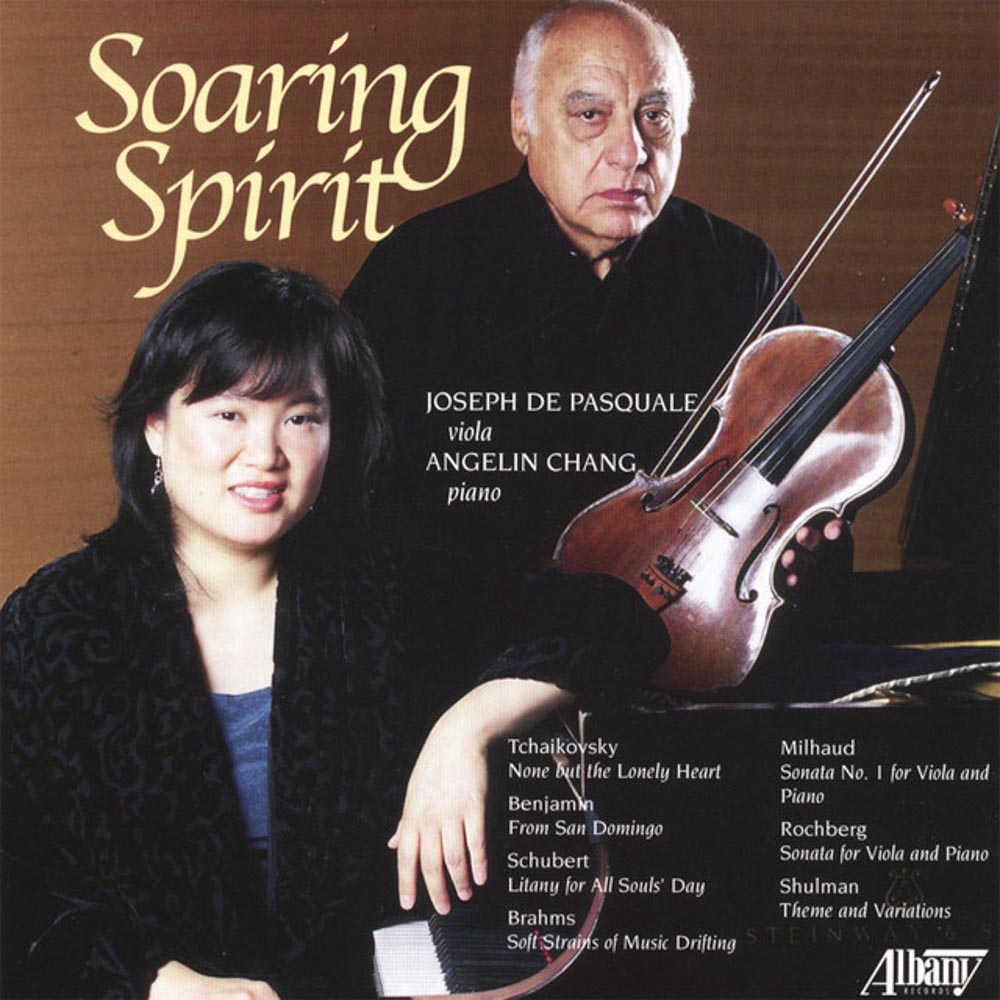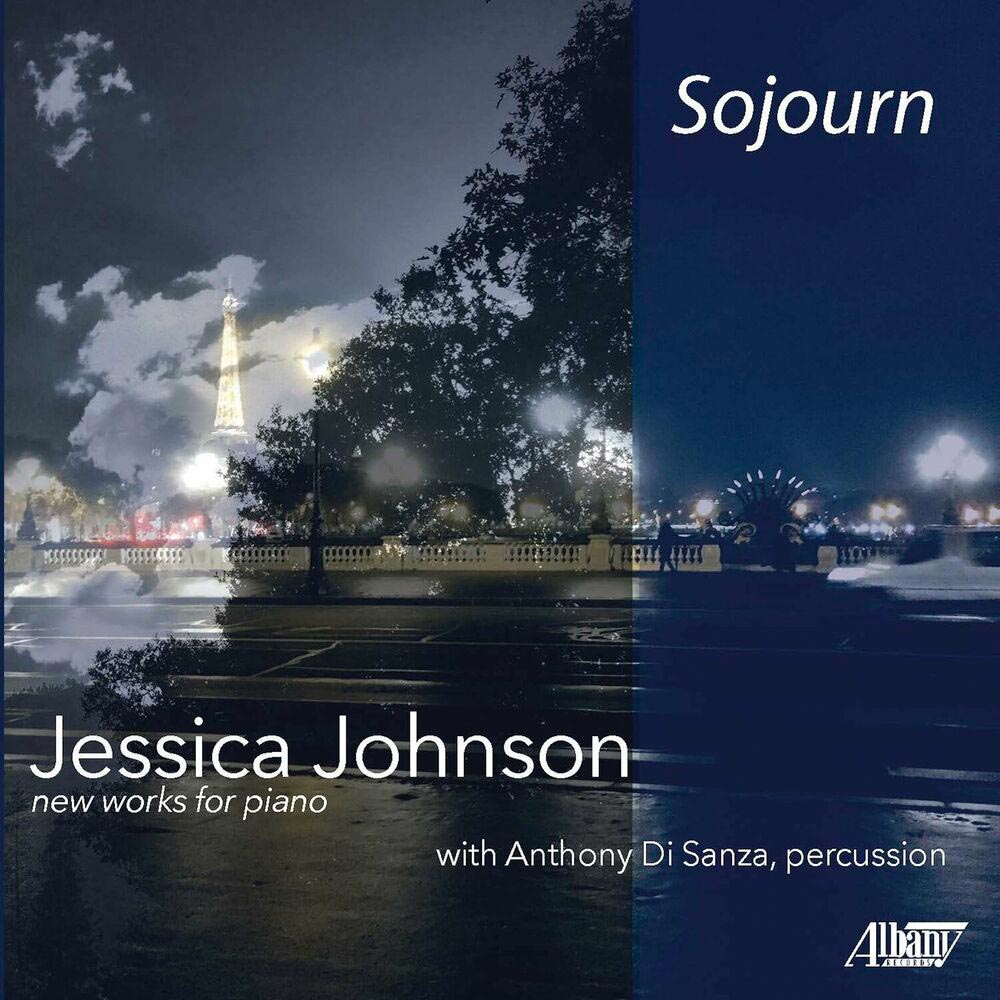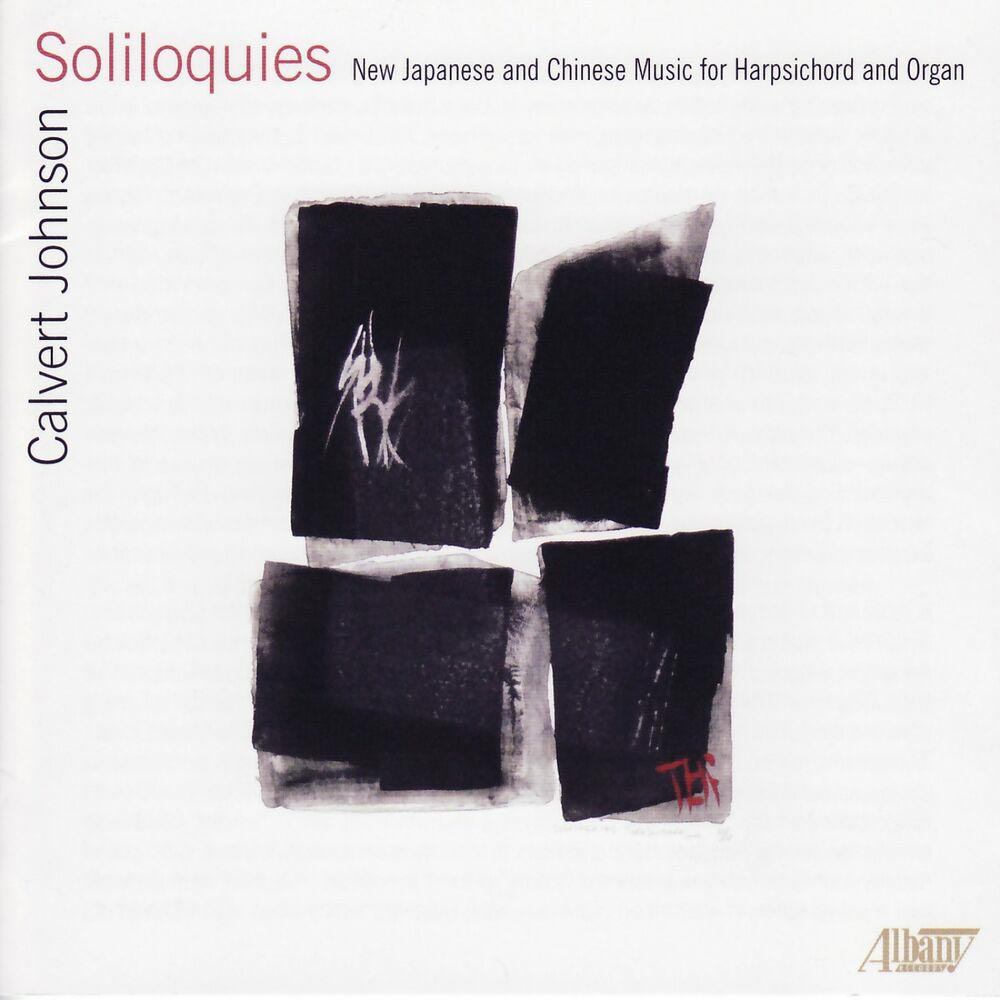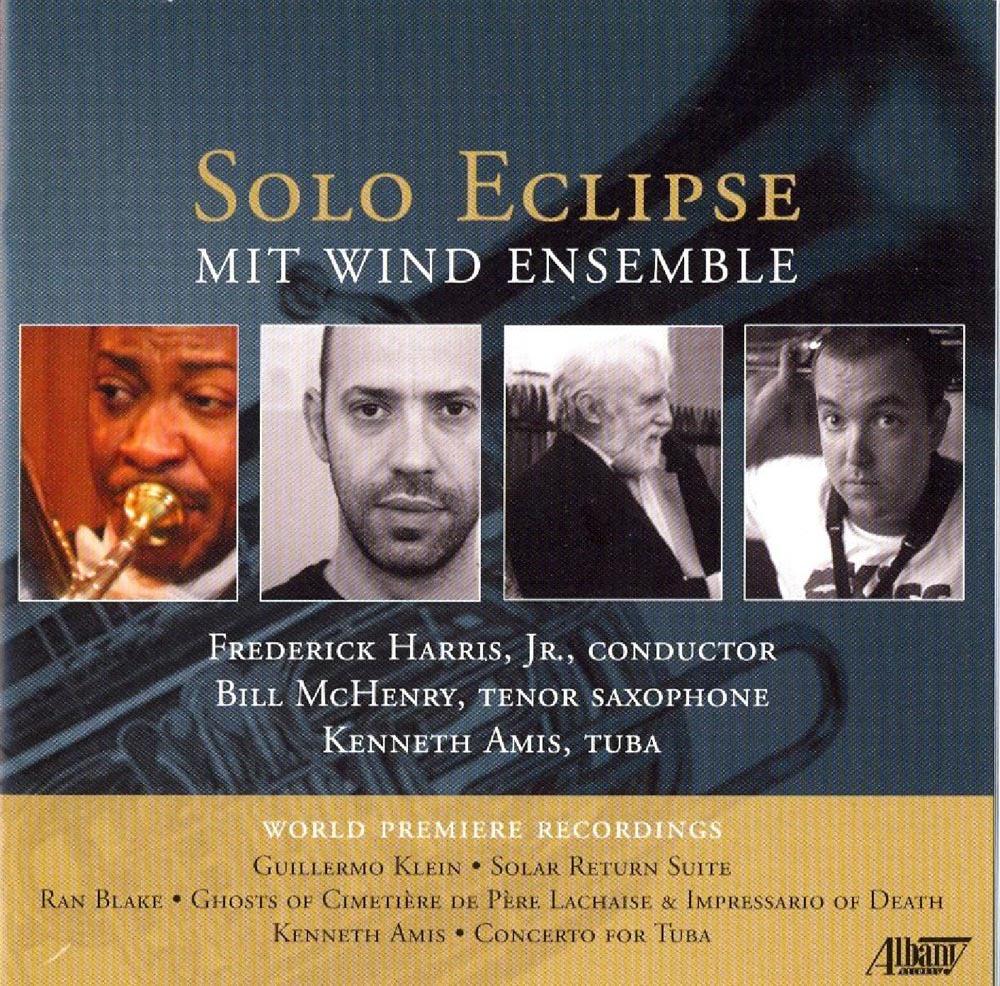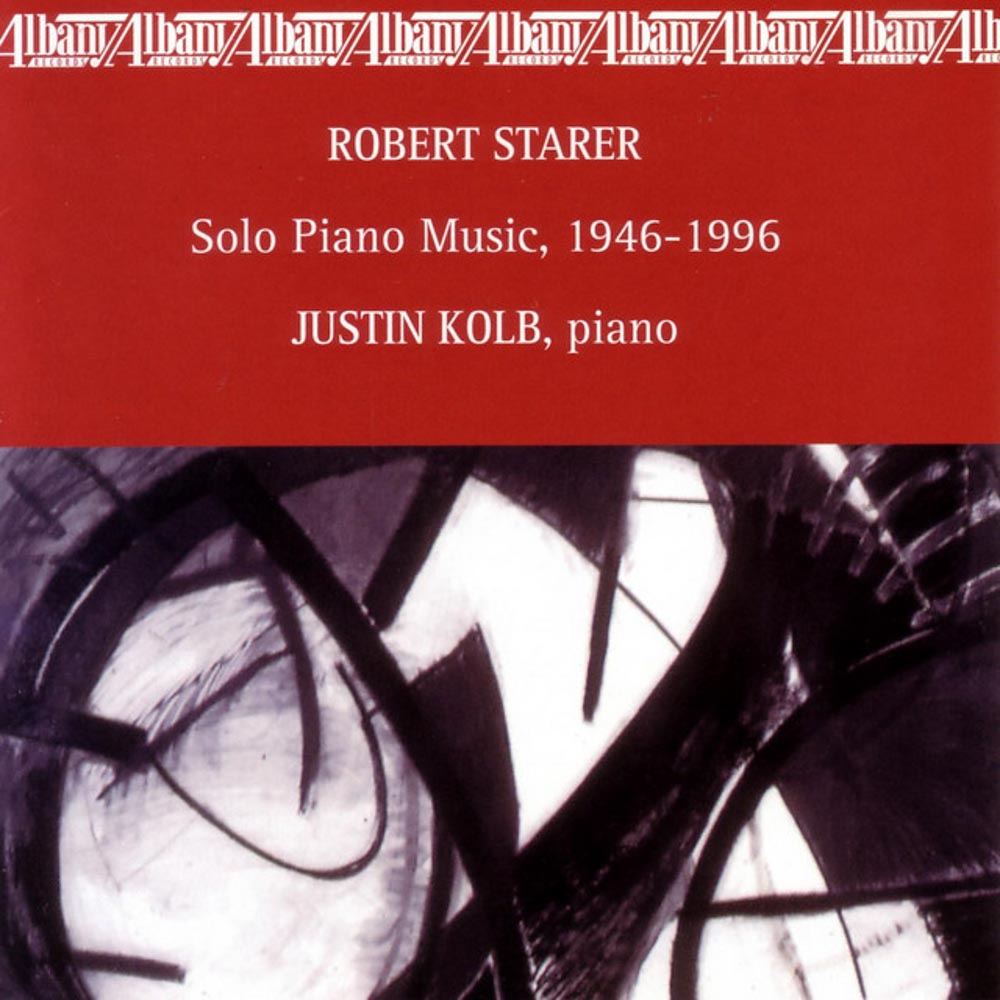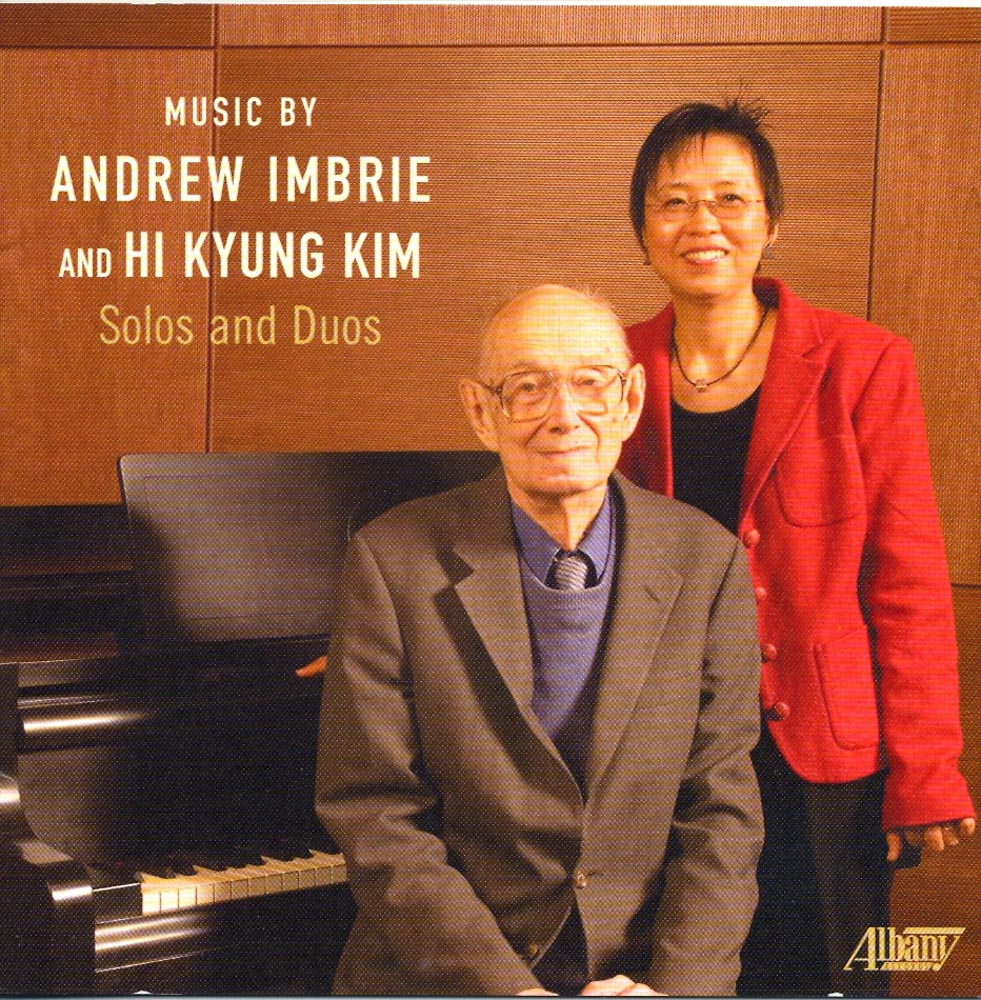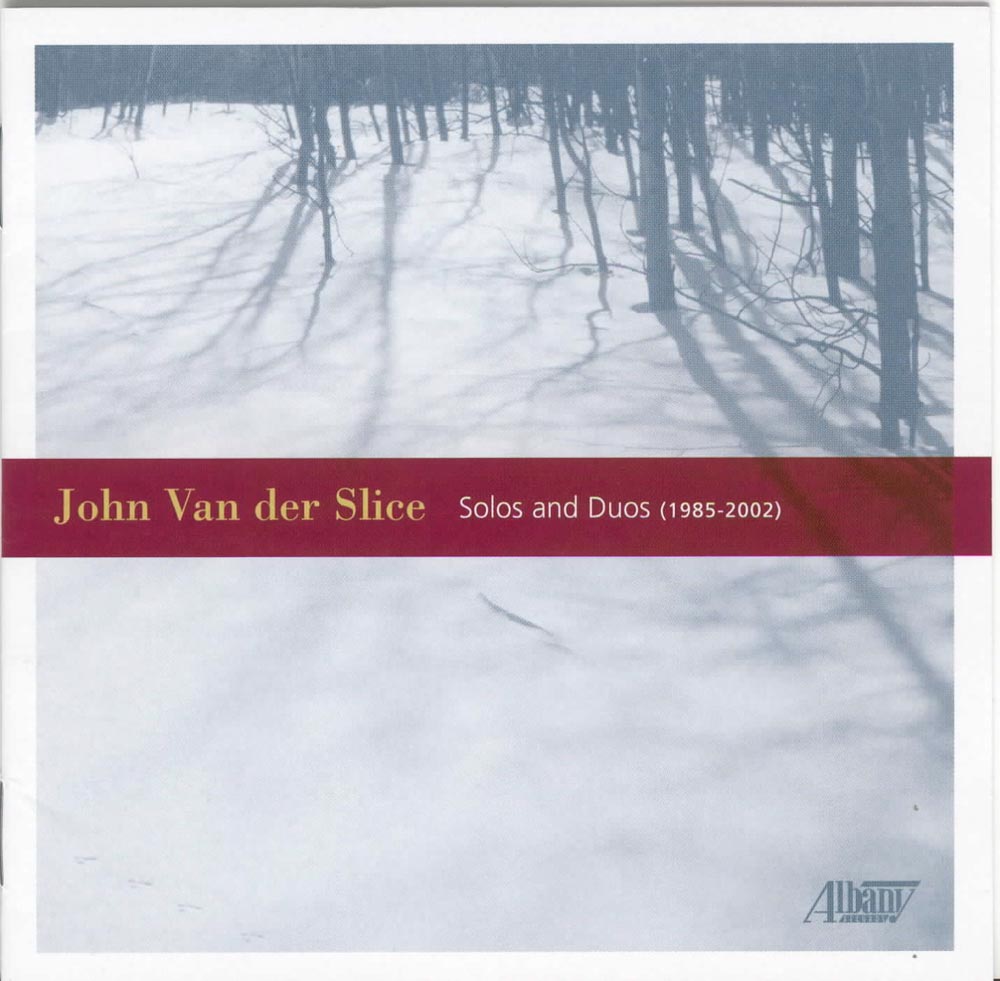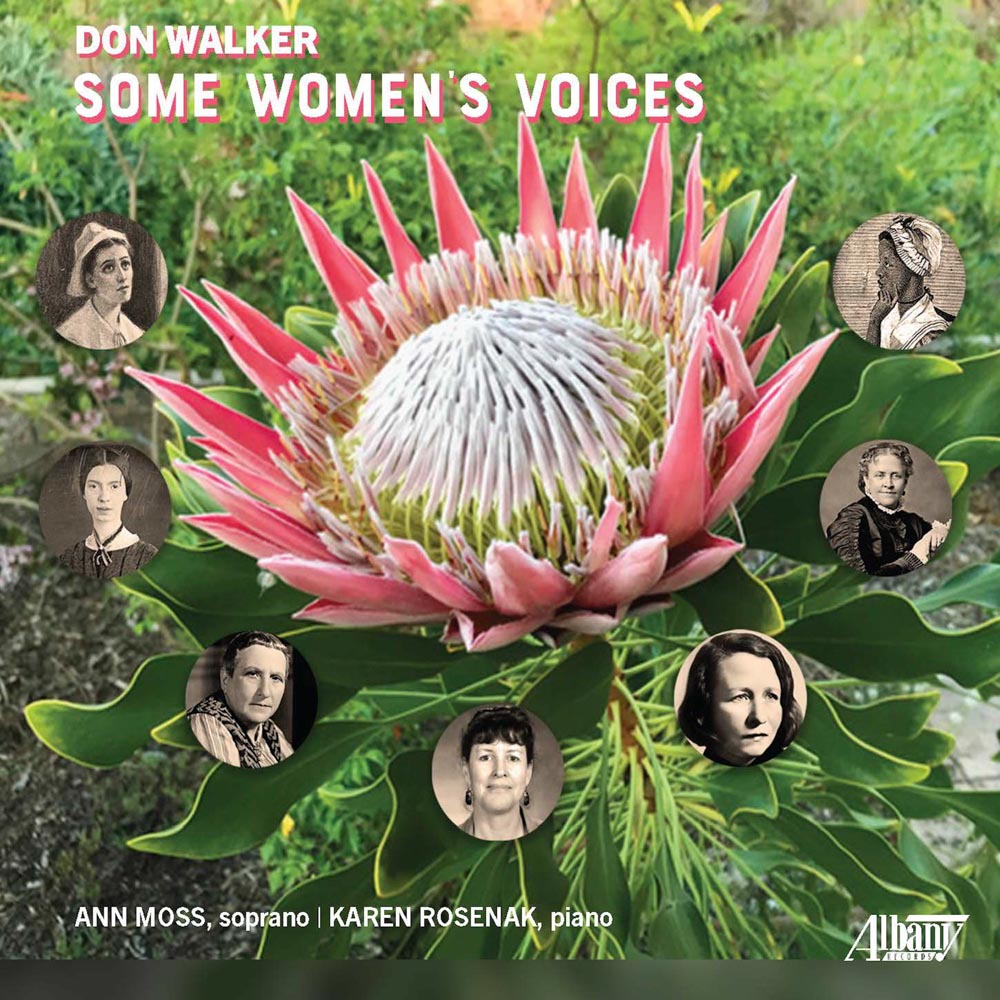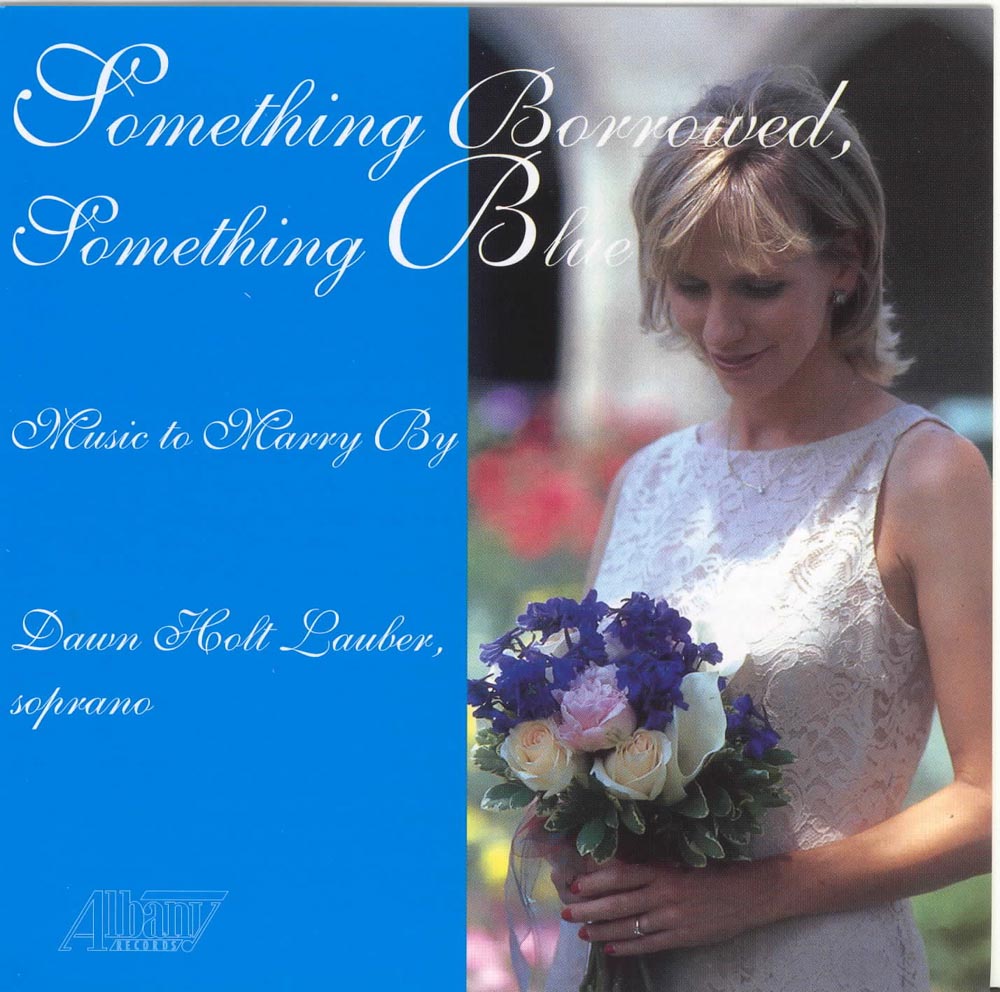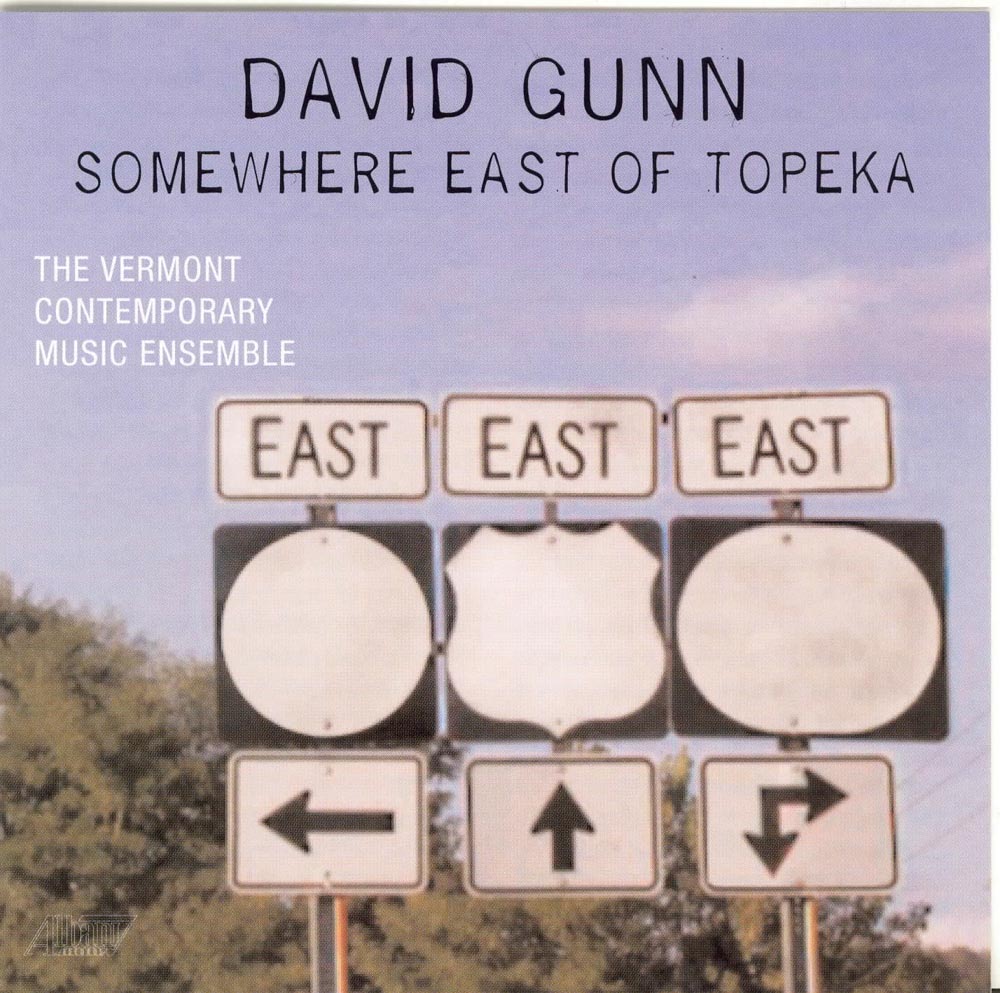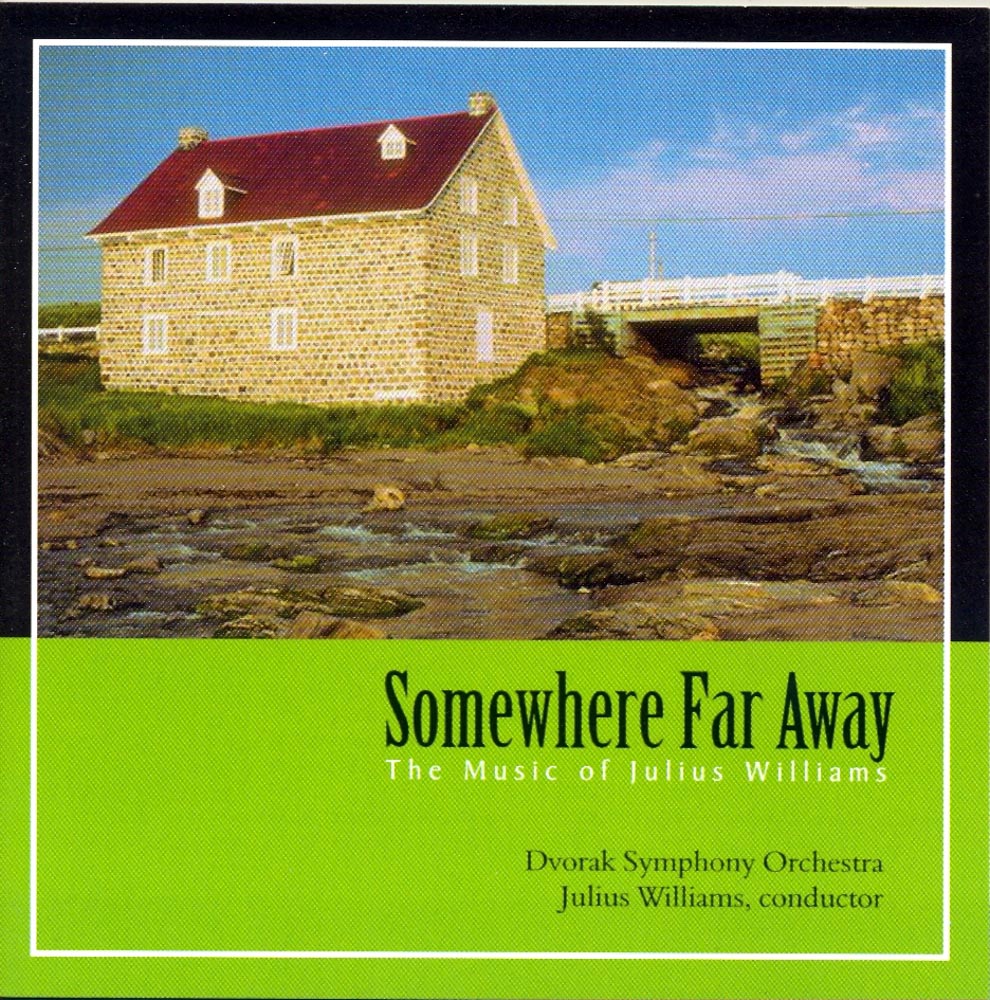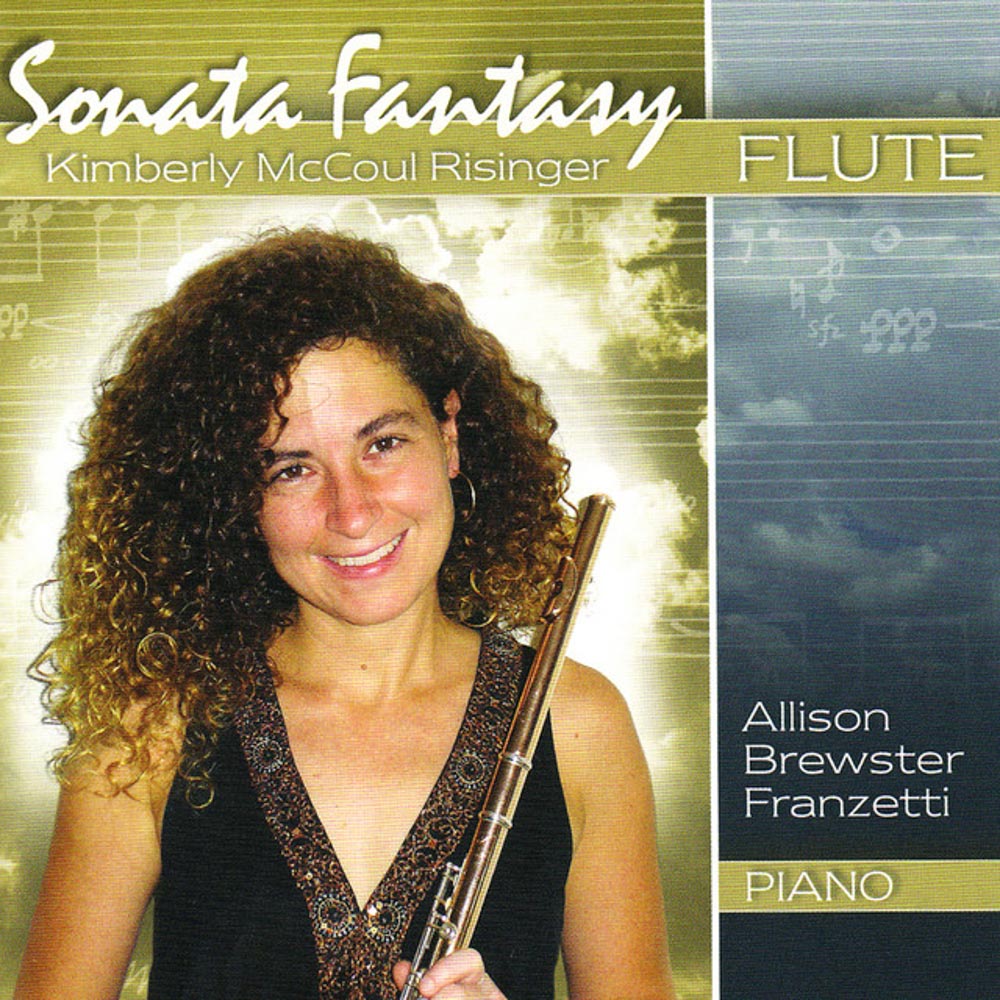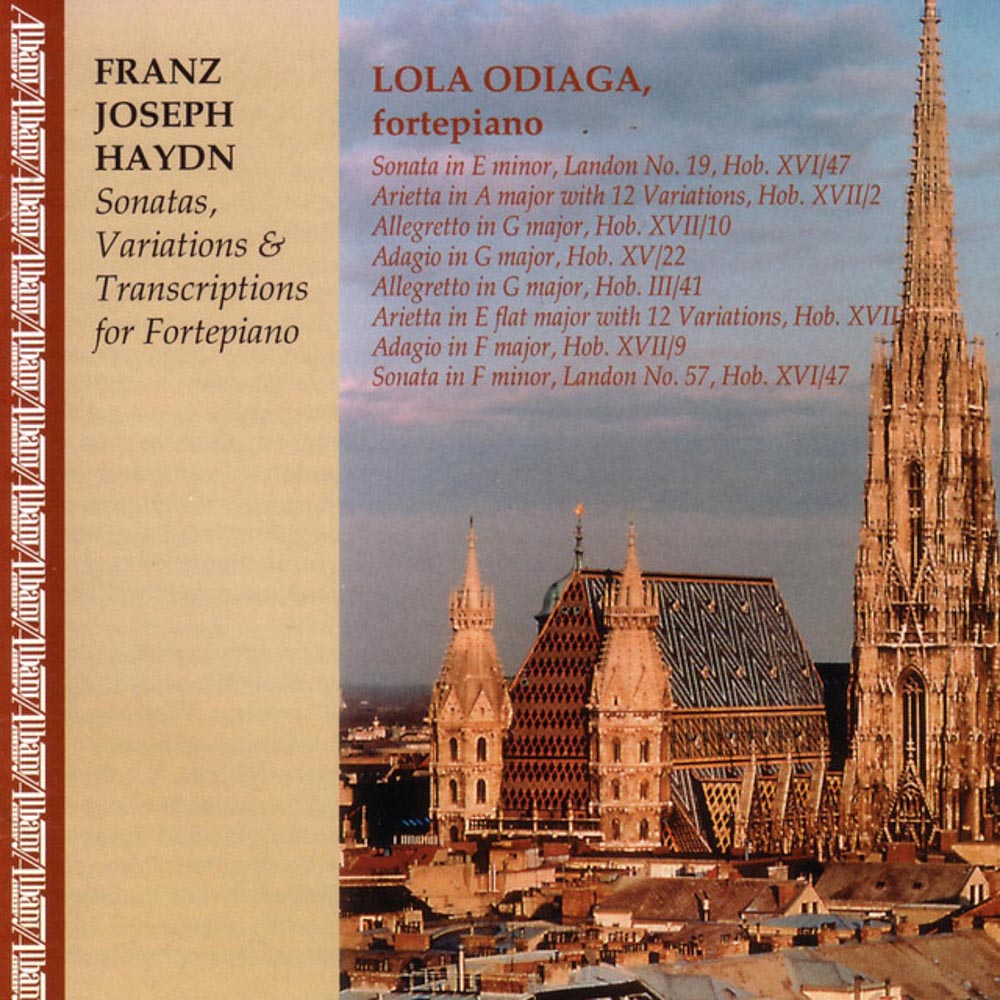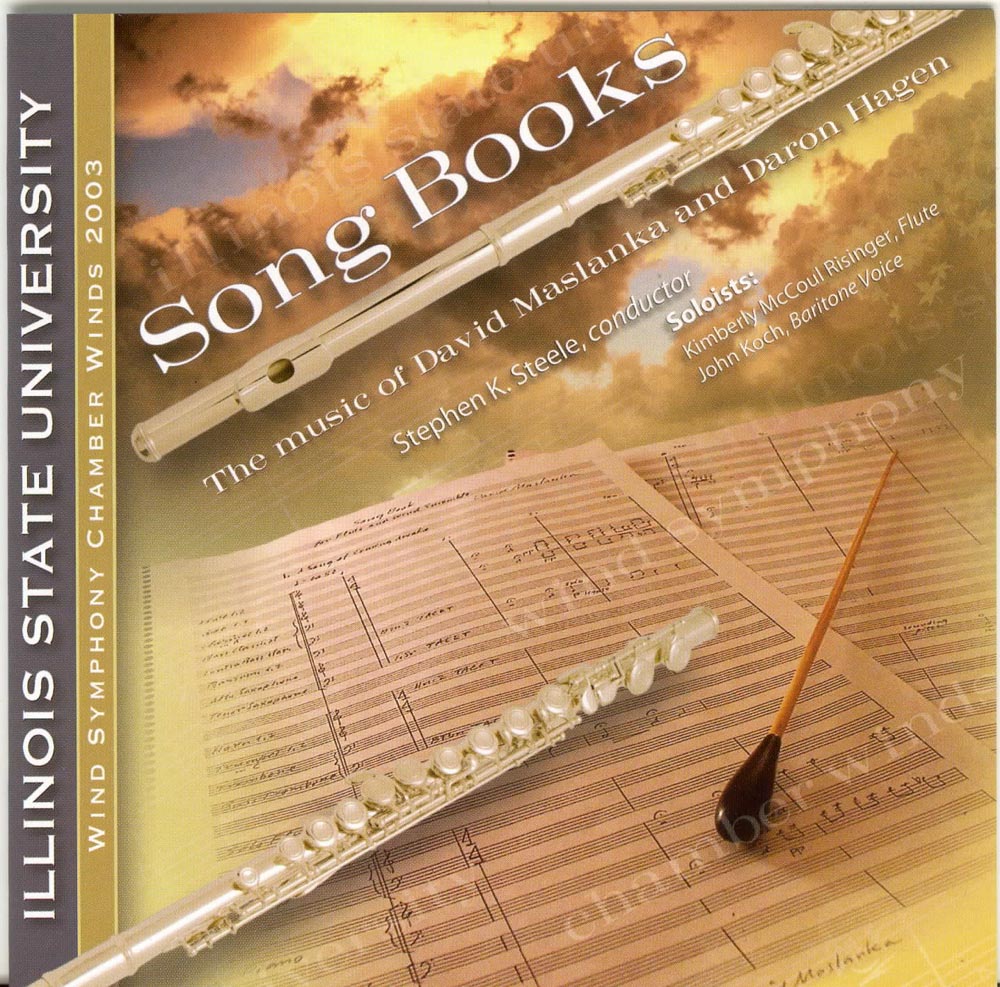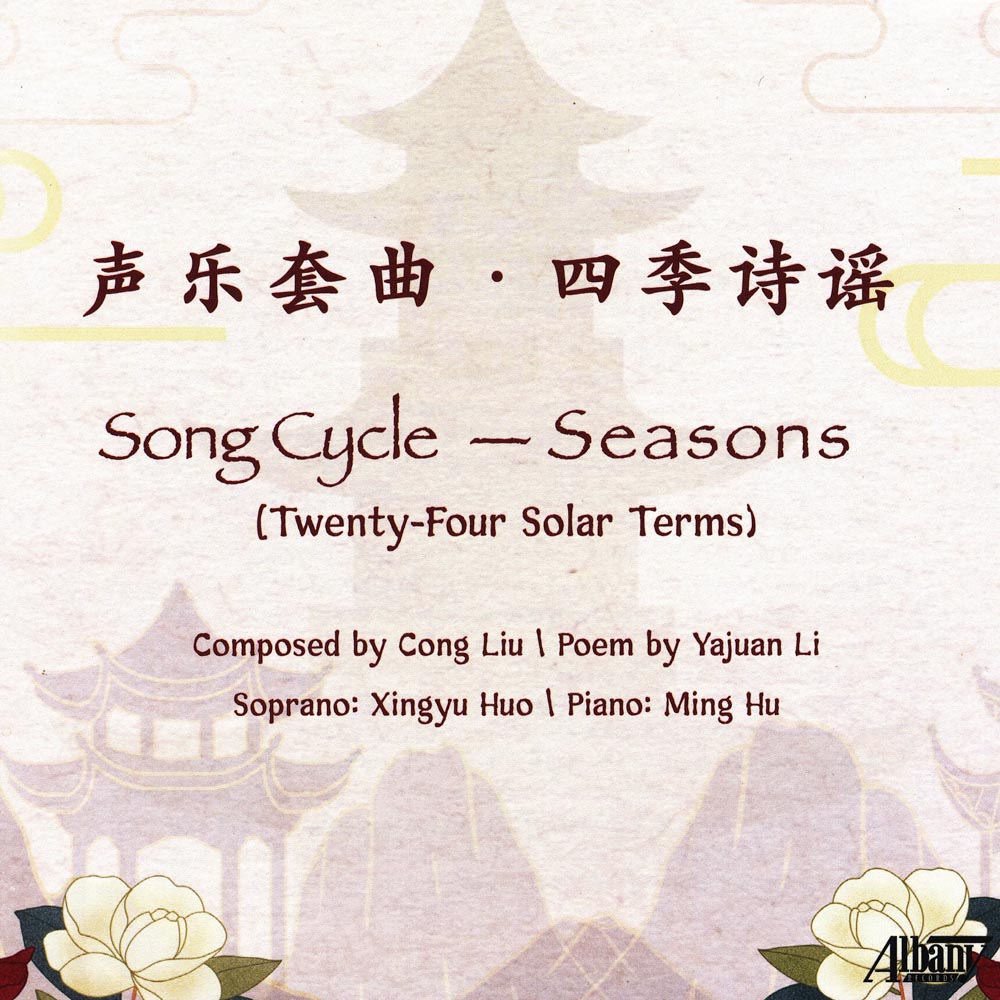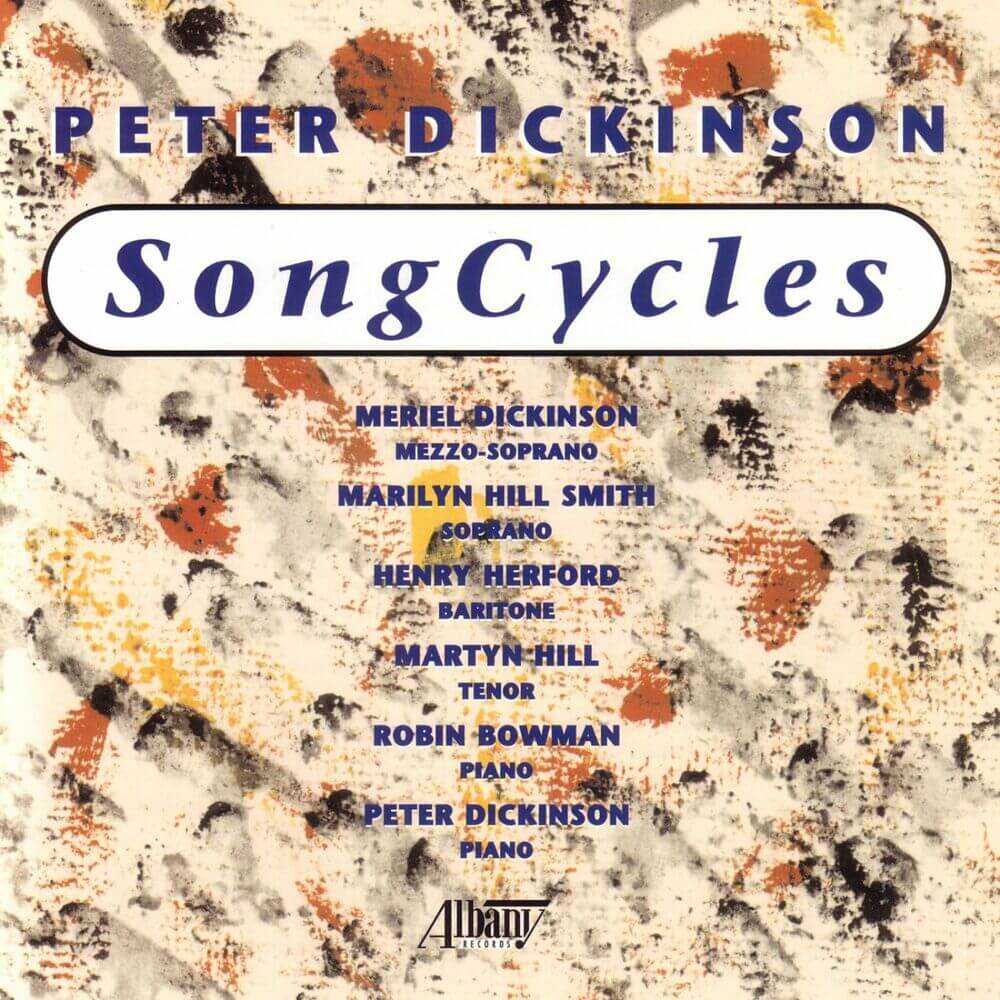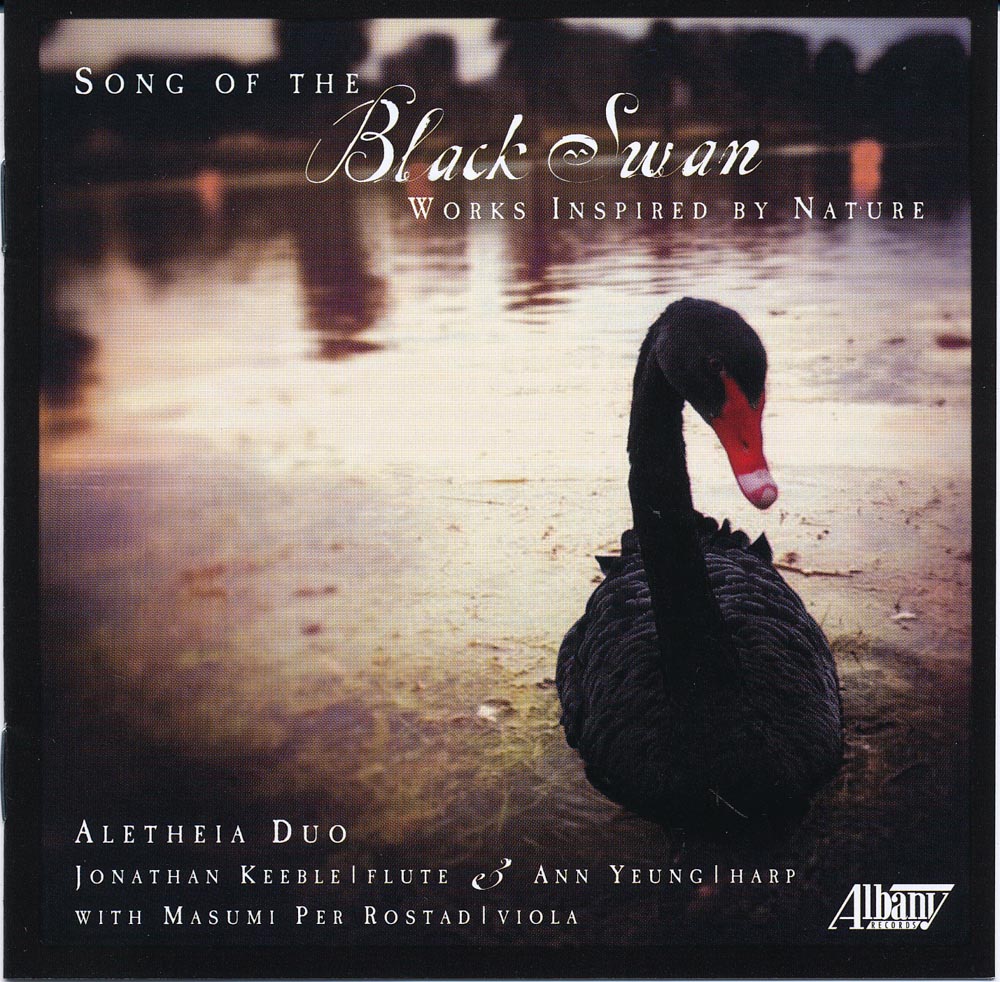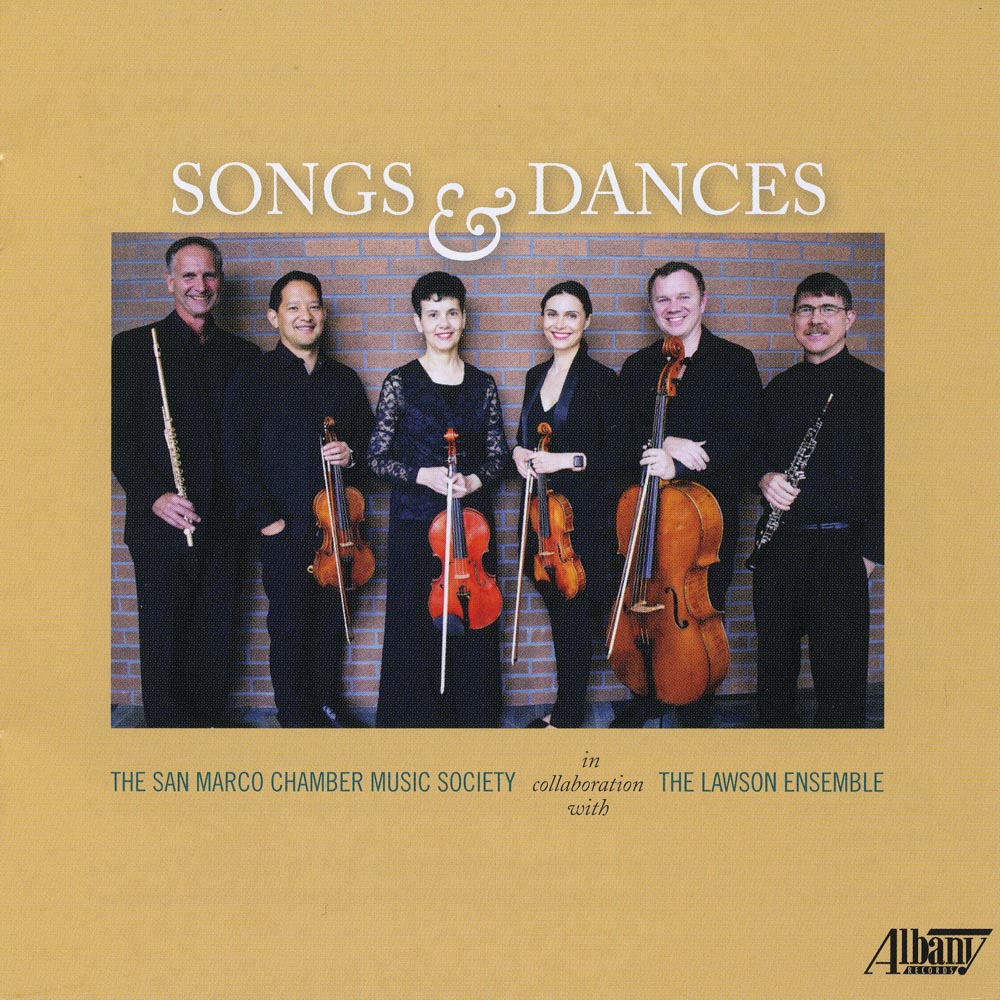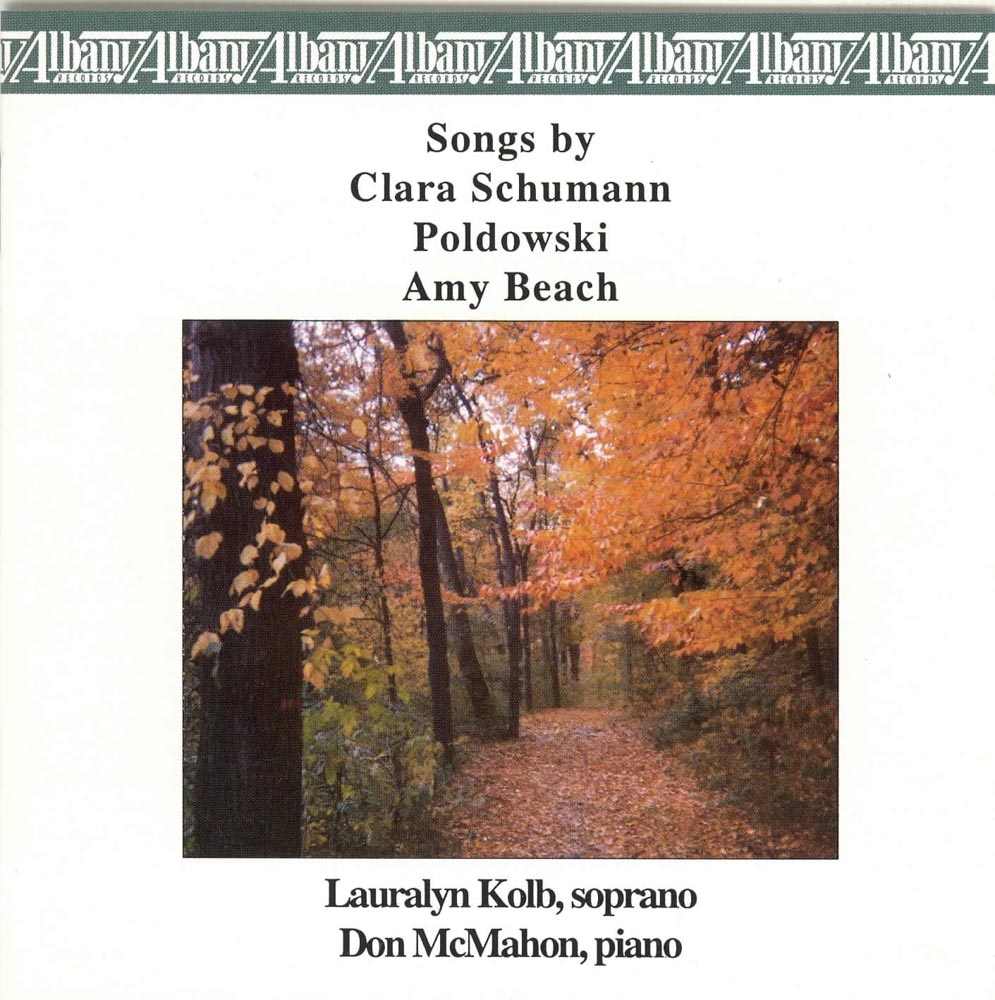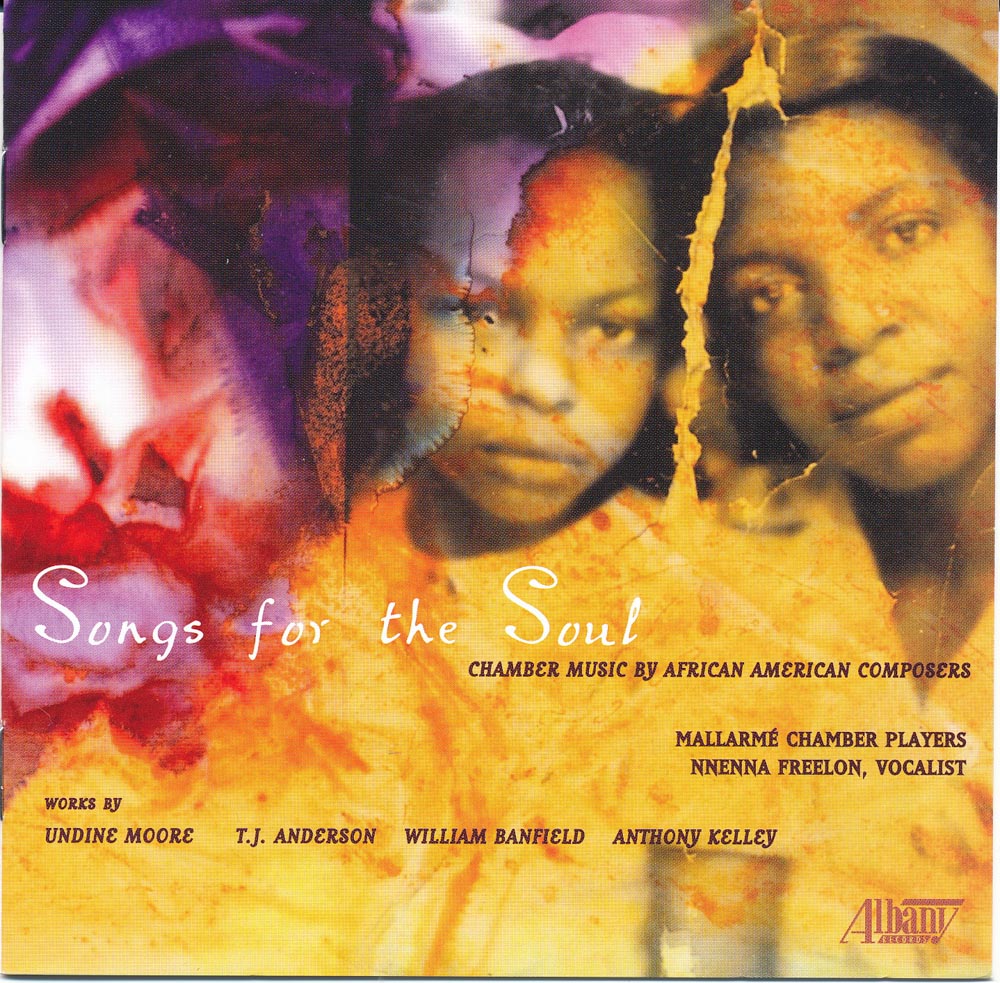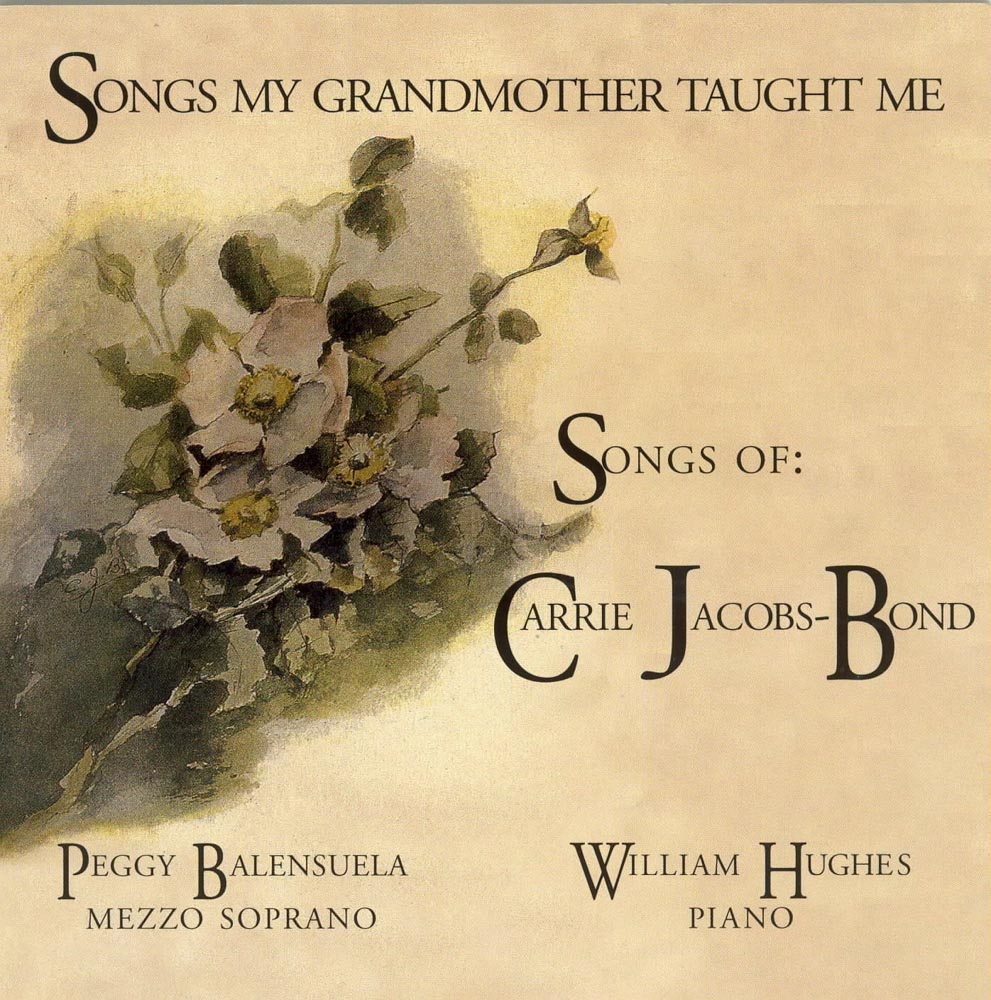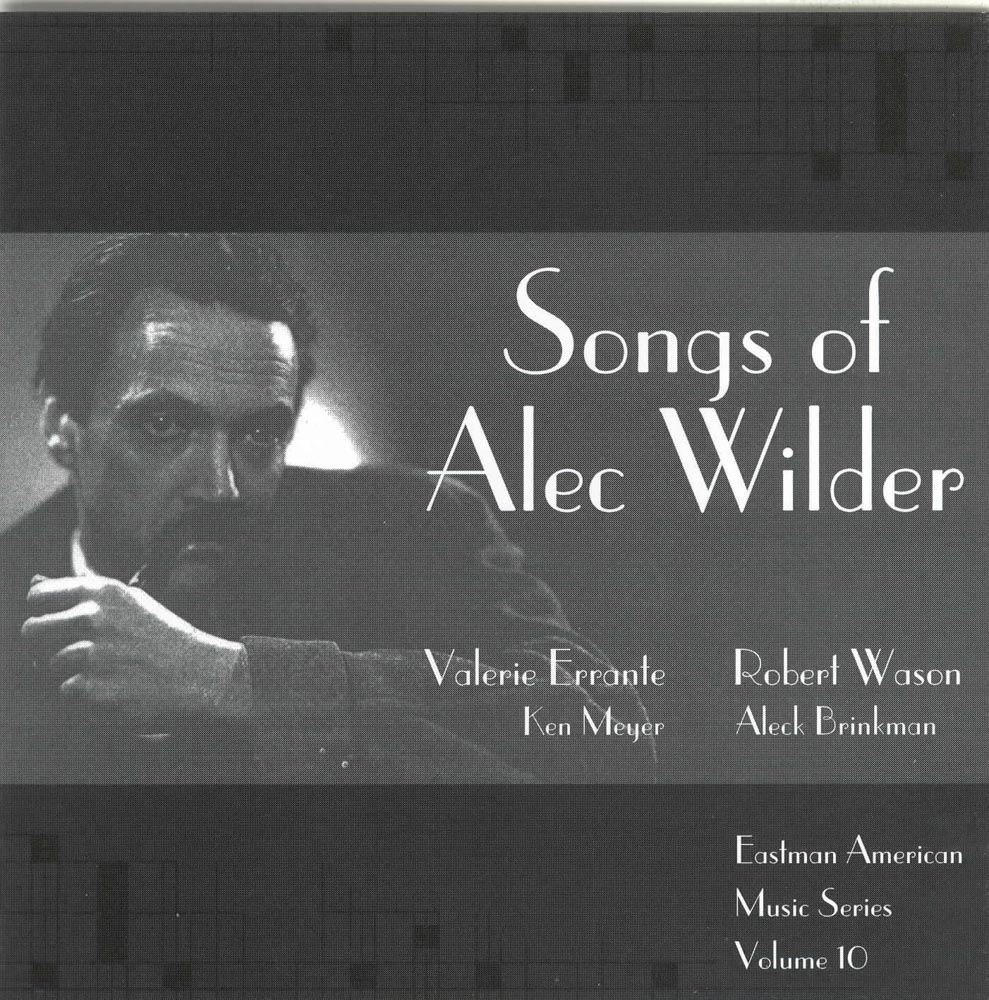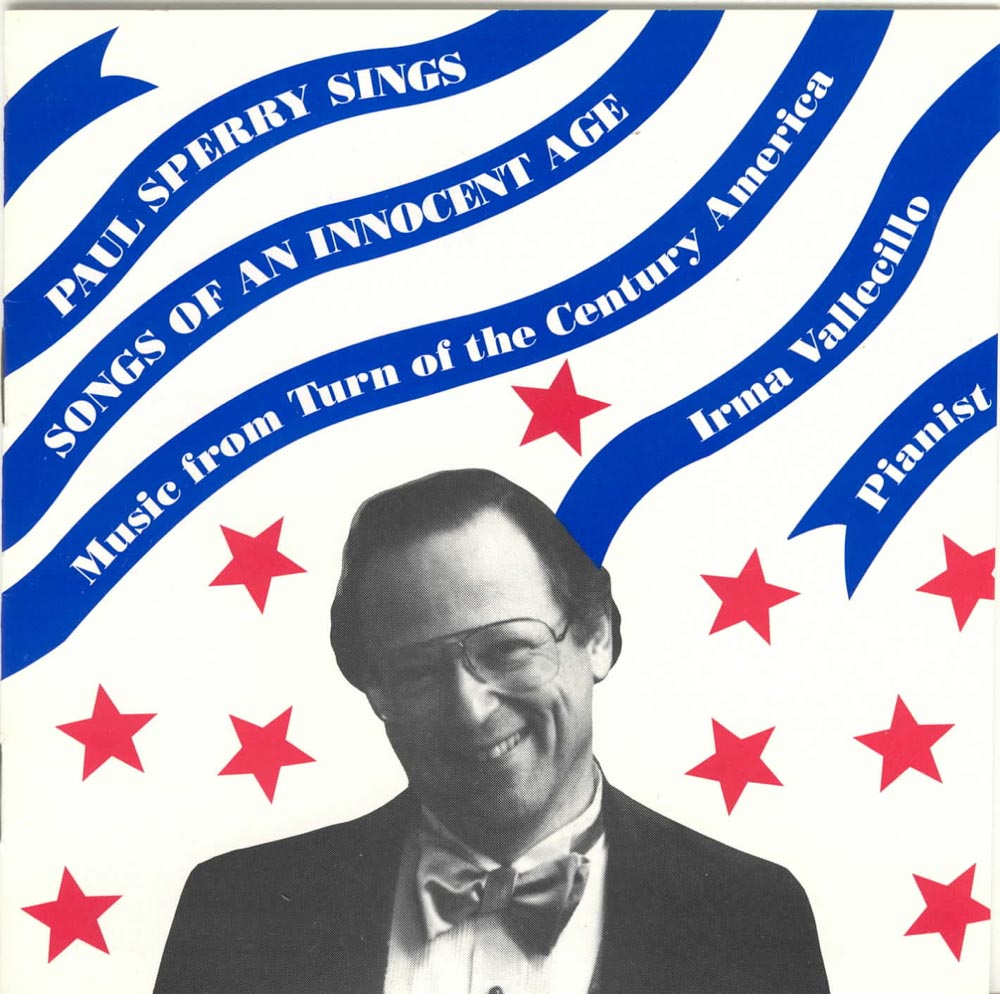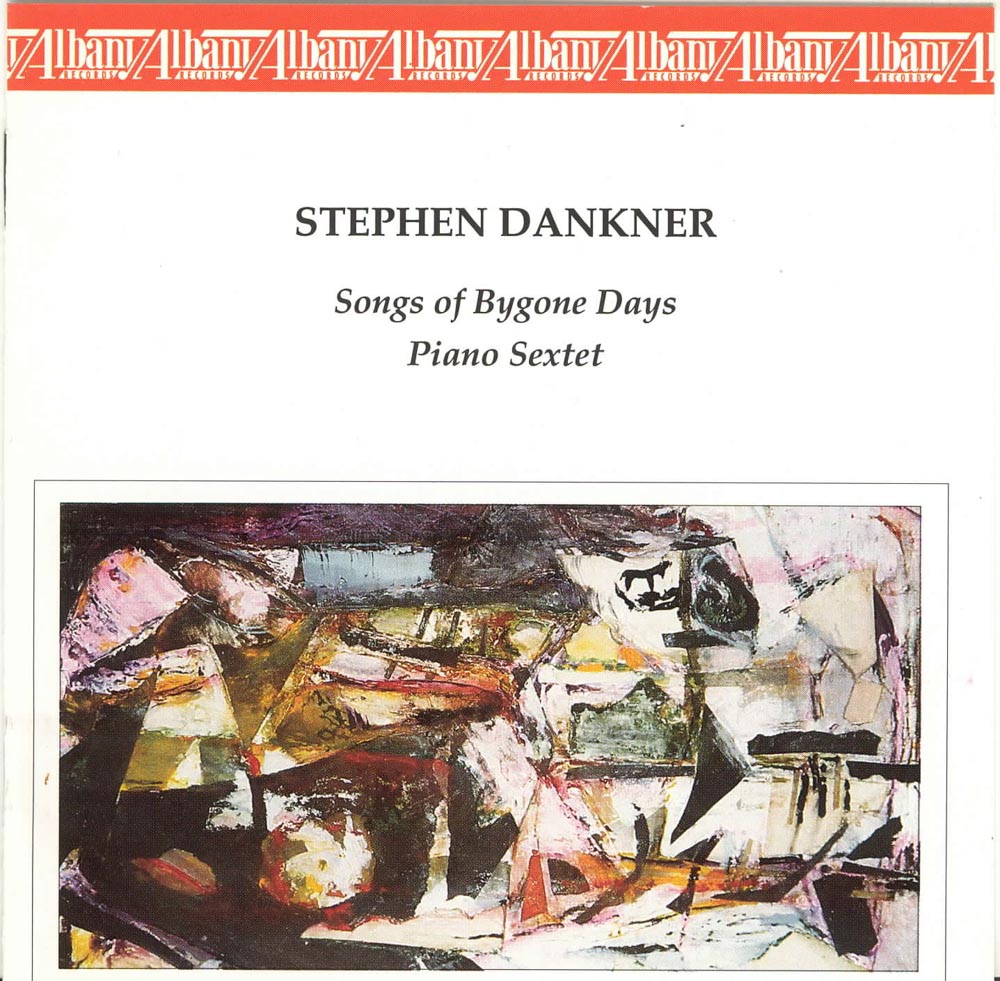Catalog #: TROY0590
Release Date: July 1, 2003OrchestralThomas Sleeper enjoys as active career as both a composer and conductor. He began his professional career as a member of Fermata, a group of composer/performers who presented annual series of interdisciplinary concerts throughout the state of Texas. At age 22, he was appointed Associate Conductor of the Dallas Civic Symphony and the SMU Chamber Orchestra and Opera Theater. "Hauntingly Mysterious," "Richly Lyrical," "Soaring Melodies" - all phrases used to describe the music of Thomas Sleeper. His output includes three operas, four concerti, an orchestral suite, three orchestral song cycles, works for chorus with orchestra, two string quartets and numerous other vocal and instrumental chamber works. Sleeper has developed a unique compositional voice whose vocabulary is clearly from, but not limited to, this century. Currently he is Director of Orchestral Activities and Conductor of the University of Miami Symphony Orchestra and Opera Theater and Music Director of the Florida Youth Orchestra. About Specters John Van Der Slice writes: "The title, Specters, reflects two aspects of the work. First, it uses a "spectrum" of thirteen pitches, descending from small intervals to large, which provides the genetic material for harmonic and melodic organization. (This serves as a surrogate overtone series and betrays my admiration for the natural sonic beauty of French "Spectral" music). Secondly, the work is a kind of abstract ballet of sound involving a mysterious play of "ghostly" timbres and textures, occasionally disturbed by sudden, more violent apparitions." Frank Ticheli joined the faculty of the University of Southern California's Thornton School of Music in 1991, where he is Professor of Composition. From 1991 to 1998 he was the Composer-in-Residence of the Pacific Symphony Orchestra. He received his doctoral and masters degrees in composition from the University of Michigan where he studied with William Albright, Leslie Bassett, and William Bolcom. He began his Symphony No. 1 in the fall of 2000 in Pasadena, California, and completed it the following year at the MacDowell Colony. Its four movements represent a kind of journey of the soul - from innocence, to introspection, to darkness and finally to enlightenment.
Catalog #: TROY0525
Release Date: October 1, 2002Wind EnsembleThomas Sleeper is the conductor of the University of Miami Symphony Orchestra. He composed his Concerto for Piano and Wind Ensemble in 1986. It was premiered in April, 1987. The three movement work, while not programmatic, attempts to capture the general essence of three characters from Goethe's Faust. The Concerto was revised in 1997 and this is the second performance of that revision. Michael Colgrass' first musical experiences were as a jazz drummer in the Chicago area (1944-49). In 1954 he graduated from the University of Illinois in music performance and composition. His teachers included Darius Milhaud and Lukas Foss. Of Dream Dancer, Mr. Colgrass writes: "The musical cultures of the world are opening up as never before. Dream Dancer is a fantasy about a musical instrument that feels attracted to various styles of music, trying to decide which one to play. I like to think of Dream Dancer as a kind of musical play with the soloist and the other instruments being actors who respond to each other dramatically." James Syler was raised in New York and Florida and educated at Northern Illinois University, the University of Miami and the University of Texas at Austin. He is primarily a self-taught composer with brief studies with Alfred Reed, Karl Korte and Michael Colgrass. He writes: "For many years I've wanted to write a large work that would combine my musical and literary interest. So much of 20th century fiction presents despairing characters who find their resolution in some form of self-destruction. In writing the text for this work I wanted to create a narrative that would resolve despair in a different way. This free verse lyrical narrative, titled Blue, is in the broadest sense about the loss of love and the process of reconnecting with love."
Catalog #: TROY1105
Release Date: April 1, 2009VocalThe release of So Many Journeys marks the 400th anniversary of the publication of Shakespeare's sonnets. This recording, performed by members of The Shakespeare Concerts, contains two of the 26 sonnets set by composer Joseph Summer, an unabashed Oxfordian, as well as pieces from his opera Hamlet. The Sonata is a set of variations based on a baritone aria from Summer's opera Courting Disaster.
Catalog #: TROY0715
Release Date: December 1, 2004InstrumentalOne of the most influential violists of our time, Joseph de Pasquale has had a profound impact on the repertoire and perception of the instrument. The dedicatee of the 25th International Viola Congress, which honored his revolutionary contributions to the field of viola performance, he holds a 50-year combined record as principal violist of the Boston Symphony Orchestra and the Philadelphia Orchestra. His signature rendition of Berlioz's Harold in Italy has become a reference work for students of the piece. And heading a distinguished musical family, he is violist of the De Pasquale String Quartet, joining with family members William and Robert, violinists, and Gloria, cellist - all members of the Philadelphia Orchestra. Mr. De Pasquale's years with the Boston Symphony spanned the tenures of conductors Koussevitsky, by whom he was appointed principal violist, Munch and Leinsdorf; during that time he premiered the Piston Viola Concerto, which had been written for him, and those of Walton and Milhaud. As principal violist of the Philadelphia Orchestra under Ormandy, Muti and Sawallisch, he performed virtually every major viola concerto, premiering Martinu's Rhapsody Concerto, Bruch's Romanze, Shulman's Theme and Variations, and Hummel's Potpourri. He has performed and recorded with such celebrated artists as violinist Jascha Heifetz and cellist Gregor Piatigorsky. Since 1990, he has been performing and recording exclusively with pianist Angelin Chang. A graduate of the Curtis Institute, where he studied with Louis Bally, Max Aronoff and William Primrose, he has served on the faculties of Indiana University and New England Conservatory and currently teaches at Curtis. His students hold positions in major orchestras worldwide.
Catalog #: TROY1953
Release Date: December 1, 2023InstrumentalSojourn features new works for piano all written in the 21st century, six of which are newly commissioned. Pianist Jessica Johnson performs these works on a DS Standard 5.5 piano keyboard. This alternatively sized piano keyboard allows a whole new level of artistic and technical freedom for pianists with small handspans. Johnson, who serves on the piano faculty at the University of Wisconsin-Madison, studied at the University of Michigan and East Carolina University. She is an advocate for new music, an active clinician, and has held residencies at major universities and colleges throughout North America, South America, Europe, and Asia. She is a three-time winner of American Music Teacher’s Article of the Year Award.
Catalog #: TROY1049
Release Date: October 1, 2008InstrumentalCalvert Johnson has put together a varied and fascinating program of music by Japanese and Chinese composers for harpsichord and organ. Johnson is Professor of Music and College Organist at Agnes Scott College. He is also organist at the First Presbyterian Church in Marietta, Georgia. Johnson earned the master's and doctorate in organ performance at Northwestern University and studied at the Toulouse Conservatoire where he was awarded the Premier Prix. He has performed throughout the U.S., Japan, England, Italy, France, Monaco, Switzerland and Germany. His extensive interests and expertise include books on early Spanish, Italian and English organ music and modern editions of works by women composers.
Catalog #: TROY1016
Release Date: April 1, 2008OrchestralCreated by conductor Frederick Harris, Jr., in the fall of 1999, the MIT Wind Ensemble is comprised of MIT undergraduate and graduate students studying a wide variety of fields including Electrical Engineering and Computer Science, Mechanical Engineering and related fields for which MIT is world-famous. The central mission of the MIT Wind Ensemble is the enhancement of the musical education and artistic sensitivity of its members through large and small wind ensemble performances of music of diverse styles from the 16th century to the present day. A secondary mission is the creation and nurturing of new music, such as the recent works on this disc that vary considerably in style and aesthetic ideas. Since 2001 the Ensemble has commissioned 18 original works by Boston-based and nationally recognized composers such as Gunther Schuller, John Harbison, Ran Blake (best-known as a third-stream artist) and Joe Lovano.
Catalog #: TROY0228
Release Date: March 1, 1997InstrumentalA proponent of American music, pianist Justin Kolb frequently performs the music of Joan Tower, Tania Leon, Aaron Copland, Samuel Barber and Peter Schickele. He has performed premieres of music by Robert Starer, Paul Alan Levi and Jan Bach. His program of Starer's solo piano music in Weill Recital Hall at Carnegie Hall was hailed by the New York Times as a "Piano Recital Program with a difference." Kolb also performs much of the standard keyboard literature with an emphasis on Beethoven, Liszt and Alkan. The notes for this disc are written by the composer who has had a life-long love affair with the piano. Contemporary music lovers will find this program most appealing and refreshing.
Catalog #: TROY1048
Release Date: September 1, 2008InstrumentalThis memorial disc of solos and duos by Andrew Welsh Imbrie (1921-2007) and one of his most distinguished pupils, Hi Kyung Kim (b.1954), boasts performances largely by the musicians who commissioned and premiered them. Two of Imbrie's last pieces, To My Son and Melody for Gayageum, written while he was fighting with his illness are included on this disc. Imbrie first studied with pianist-composer Leo Ornstein between 1930 and 1942, with an eye to becoming a virtuoso pianist as well as a composer. He spent most of World War II in the Army Signal Corps. He studied with Roger Sessions at Princeton and then at the University of California, Berkley. He was appointed professor of music at UC Berkeley in 1949, a post he held until he retired in 1991.
Catalog #: TROY0870
Release Date: September 1, 2006InstrumentalJohn Van der Slice received his A.B.degree from the University of California at Berkeley, an M.A. degree in Ethnomusicology and a M.M. in Composition from the University of Hawaii at Manoa, and a D.M.A. degree in composition from the University of Illinois at Urbana. He studied composition with Armand Russell, Neil McKay and Paul Zonn. He is a specialist in the music of the 20th and 21st centuries and his own compositions include more than forty works for solo instruments, chamber ensembles, and orchestra (Specters, on TROY590). He was Professor of Music Theory at the University of Miami Frost School of Music, from which he retired in 2005. Solos and Duos presents an excellent cross-section of his chamber pieces. In Solo for Piano, for example, individual pitch intervals function as subjects of a musical drama which unfolds within contrasting sections. Solo for Tuba may be thought to "suggest a lifeform struggling to assert itself in what threatens to be a losing battle." The title Embers (written for the Malletkat, an electronic, programmable MIDI controller mallet percussion instrument) suggests "remnants of thought...glowing, briefly flaring, dying...until a final reawakening."
Catalog #: TROY1898
Release Date: June 1, 2022VocalDon Walker's fifth release on Albany Records features songs he has written using the poetry of Anne Bradstreet, Phyllis Wheatley, Helen Hunt Jackson, Emily Dickinson, Gertrude Stein, Harrie Alley, and Edna St. Vincent Millay. Walker taught at Sonoma State University, the University of South Florida, and Oregon State University. The music is performed by soprano Ann Moss, who is a graduate of the Longy School and the San Francisco Conservatory. An ardent advocate for contemporary music, she has been responsible for the commissioning and premieres of more than 80 art songs, vocal chamber music, and operatic roles. She is joined by pianist Karen Rosenak, a longtime member of the Empyrean Ensemble, and a founding member of the new music ensemble Earplay.
Catalog #: TROY0522
Release Date: December 1, 2002VocalJust as she blends a masterful mix of musical genres in concert halls across the country, engaging oratorio soloist Dawn Holt Lauber will inspire the musical choices you make for your wedding day with this collection of the old and new, appropriately titled "Something Borrowed, Something Blue." Listen in and you will be lured by a handful of selections that are a bit off the beaten path - a beautiful marriage of classical and jazz that promises to be a perfect accompaniment to the beginning of your new life together. Dawn Holt Lauber has appeared extensively with the Chicago Jazz Ensemble. She first performed Duke Ellington's sacred works at the Riverside Church in New York City with members of the Duke Ellington Orchestra. She has been a soloist at the Riverside Church for five years.
Catalog #: TROY1268
Release Date: May 1, 2011VocalThis CD presents songs by some of America's reigning composers, many known for their cross-genre writing, including jazz, pop, classical, folk and art songs written with distinguished authors for concert, theatre and film venues. The elements are universal--melody, groove, harmony, story and imagery--the musical passport to a chapter in The Great American Songbook. Lisa Kirchner is joined by a group of world-class performers in jazz and classical genres. They offer a unique take on these gorgeous songs crossing the borders of musical genre.
Catalog #: TROY0535
Release Date: January 1, 2003ChamberDavid Ross Gunn began his musical training at Settlement Music School in Philadelphia, studying piano and percussion. He later graduated from Ohio State University with a degree in music composition. It's easy to be dismissed as trivial when your music is attractive, and with David Gunn's music, that would mean missing out on its real attraction. Long before it was fashionable, Gunn used clear-cut rhythms, evident melodies, and explicit harmonies - all while moving music forward into new territory, not backward into some neo-romantic haze. Besides being a composer, Gunn is also a writer, humorist, a new music radio show co-host. He currently lives in the middle of Vermont and in hope of, in order, peace on earth, good will towards men, and a pile of cash in the bank.
Catalog #: TROY1072
Release Date: December 1, 2008OrchestralJulius P. Williams is an award-winning conductor, composer, recording artist, educator, author and artistic director. A prolific composer, Williams has created dozens of works for virtually every genre of contemporary classical performance. His film score for Lifetime TV's Fighting for our Future won the Gracie Allen Documentary Award in 2003. Williams included the composition by Joe Westmoreland (Somewhere Far Away) as a tribute to him and to his mentor Coleridge Taylor Perkinson, who orchestrated Westmoreland's work.
Catalog #: TROY0976
Release Date: November 1, 2007InstrumentalAn advocate of contemporary music, the highly-acclaimed Ms. Risinger has played throughout the United States and abroad, often presenting world premieres of works written for and dedicated to her. She is currently Principal Flute in the Illinois Symphony. She is also a member of the Sonneries Wind Quintet and has performed with the Ohio Light Opera and the Washington Bach Sinfonia.
Catalog #: TROY1039
Release Date: August 1, 2008InstrumentalThe virtuoso pianist Pedja Muzijevic was turned on to the music of John Cage by dancers. As he explains, "Mikhail Baryshnikov introduced me to the ethereal In a Landscape and we subsequently used it in our "Solos with Piano or not..." program. Then Trisha Brown choreographed a few of the Sonatas and Interludes and asked me to play them with her company... I promptly fell in love with the strange and interesting world of Sonatas and Interludes and started thinking that it would be wonderful to expose them to a variety of other music... Rest assured this program has no underlining story, title or deep meaning... Putting dried figs in a pork stew doesn't make any sense... It does taste good though!"
Catalog #: TROY0219
Release Date: December 1, 1996InstrumentalLola Odiaga, the Peruvian harpsichordist and fortepianist, studied piano at the Juilliard School of Music in New York and at the Hochschule fur Musik in Hamburg, and harpsichord at Yale University. She holds degrees from the Juilliard School and Yale University and studied with Edward Steuermann and Ralph Kirkpatrick. She has taught at the National Conservatory of Music in her native Lima, Wellesley College, the Hartt College of Music, the Yale University School of Music and Boston University School of the Arts. Since 1983, she has only been performing on the fortepiano. The fortepiano used in this recording is a copy of an Anton Walter instrument dated c. 1790, built by Rodney Regier of Freeport, Maine. It has a compass of just over five octaves and - as was the case with the fortepianos of the period - in many ways resembles the harpsichord more than the modern piano. It has a wooden rather than a metal frame and is strung at a lower tension with lighter gauge strings. These features of its construction are directly related to a clear and distinct tone throughout its range.
Catalog #: TROY0600
Release Date: August 1, 2003Wind EnsembleDavid Maslanka was born in New Bedford, Massachusetts and attended Oberlin where he studied with Joseph Wood. He spent a year at the Mozarteum in Salzburg and did graduate work in composition with H. Owen Reed at Michigan State University. He has served on the faculties of various universities and colleges and presently resides in Missoula, Montana. He writes: "Song Book is a set of pieces that are song-like - that is, intimate and expressive, though not necessarily quiet. The solo flute feels like a voice to me, a voice which has a complex story to tell, in the form of musical dreams. The 371 Four-Part Chorales by Bach have been a long-time focal point for my study and meditation. These chorales are the models for melodic and harmonic movement used by every beginning music theory student. I had my first encounter with them as a college freshman in 1961. Ten years ago I returned to singing and playing them as a daily warm-up for my composing. I have come to experience the chorales as touchstones for dream space. I have used many of them as the jumping off point for my own compositions. The feeling is one of opening an unmarked door and being suddenly thrust into a different world. The chorales are the doors." Daron Hagen was born in Milwaukee and studied at the Wisconsin Conservatory of Music. He continued his studies at the University of Wisconsin, the Curtis Institute of Music, and the Juilliard School, working with teachers as diverse as Ned Rorem, Joseph Schwantner, David Diamond and Witold Lutoslawski. Mr. Hagen writes: "Excited by the technical challenges that making winds and voices work well together posed, I discussed with conductor Michael Haithcock the possibility of adding to the repertoire for voice and wind ensemble. The result was The Heart of the Stranger, a song cycle for baritone voice and orchestral winds, which was first performed September 20, 1999 at Baylor University by the Baylor Wind Ensemble, Paul Kreider, baritone soloist under the direction of Michael Haithcock."
Catalog #: TROY1874
Release Date: July 15, 2021VocalThis recording is of a newly composed Chinese art song cycle by two renowned Chinese cultural figures -- composer Cong Liu and poet Yujuan Li. The cycle consists of 24 songs, each representing one of the 24 solar terms. The cycle depicts the traditional Chinese solar terms and their representative agricultural folk traditions, with the short Chinese poems describing the human activities and cultural changes to the landscape through the seasons. Composer Cong Liu is on the faculty at Shenyang Conservatory of Music and is the director of multiple music institutions and symphony orchestras. His compositional style combines Western techniques with Chinese folk song elements. Poet Yujuan Li has written more than 1,000 texts in various styles and she has won more than 100 national awards. Soprano Xingyu Huo is completing her DMA at the University of Iowa. She has performed with opera companies in Italy and concertized in China, Austria, Italy, and the United States.
Catalog #: TROY0365
Release Date: April 1, 2000VocalThe British composer, Peter Dickinson, was born at Lytham St. Annes, Lancashire. His musical personality ranges widely from the three substantial concertos for organ, piano and violin to the forthcoming witty Rags, Blues and Parodies collection. His layering technique in larger works - and notably in Surrealist Landscape here - enables different types of music to coexist in a way that sounds like no other composer. These song cycles show Dickinson responding to major 20th century writers and his sometimes colloquial manner may derive from some of the poets represented. For this recording, some of the finest British singers of their generation have worked with the composer to create an unusual document in the history of the English song cycle.
Catalog #: TROY1345
Release Date: April 1, 2012ChamberThis recording presents works for flute and harp that seamlessly arc between the natural world and the human spirit, serving as reminders of the fragility of the environment and the ability to perceive and affect it. As the Aletheia Duo, flutist Jonathan Keeble and harpist Ann Yeung share a passion for bringing the creative possibilities of the music of this time to their audiences and have inspired critics to describe their evocative performances as having "lyricism, and above all, magic." This passion balances their commitment to reinterpreting contemporary and historic compositions for flute and harp with verve, sensitivity, and enthusiasm. Individually recognized as leading performers and exceptional pedagogues, they have been performing together since 2002. They are both on the faculty of the University of Illinois at Urbana-Champaign.
Catalog #: TROY1753
Release Date: December 1, 2018ChamberThe San Marco Chamber Music Society in collaboration with the Lawson Ensemble present three American works: one (Amy Beach), a glowing example of the American Romantic style; another (Szewczyk) a world premiere for oboe and viola; and the third (Douglas) a concerto for oboe and string quartet. The San Marco Chamber Music Society is based in Jacksonville, Florida and has been performing chamber concerts there since 2008. Founded by Eric and Ellen Olson, the performers are primarily members of the Jacksonville Symphony. Formed in 2015 the Lawson Ensemble is a string trio who is in residence at the University of North Florida.
Catalog #: TROY1778
Release Date: June 1, 2019VocalFrench composer and pianist Cécil Chaminade (1857-1944) wrote approximately 400 compositions, including 125 songs. Dismissed by her male colleagues, she did make a mark through her French romantic style at the turn of the century. Though she is primarily known today for her solo piano compositions and her recordings for the gramophone, this recording illuminates a facet of her much overlooked mélodie oeuvre. The songs on this disc display not only Chaminade's adroit word pianting but also her ability to spin orchestral effects through her piano writing. Soprano Sooah Park has been praised by critics for her role as Oscan in Verdi's Un Ballo in Maschera, saying, "Sooah Park shines as Oscar, and her singing is utterly delightful." (Houston Arts Week) She has performed as a recitalist and in opera around the world including performances in Australia, Brazil, Mexico, Finland, South Korea, and the United States. On the faculty at the University of Texas at Tyler, she studied at Eastman and the University of Texas at Austin. Her collaborator, pianist Sang Woo Kang is an active performer who has presented masterclasses and recitals inmore than 25 countries. He pursues his career as a solo, orchestral, and chamber music performer while teaching at Providence College and Brown University.
Catalog #: TROY0109
Release Date: March 1, 1994VocalThe works of women composers have been consistently overlooked by music historians. New emphasis is now being placed on "women in music" in music departments and women's studies programs across the country. The works of many women are beginning to emerge from the neglect of the past, and are becoming recognized as compositions worthy of study and performance. This is especially true in the art song genre which because of the small forces involved, allowed for the possibility of performance, even if only in the home. The songs of these three composers represent three different styles. Although all were born in the nineteenth century, their styles of composition are as distinct as the poetry that each chose to set. Clara Schumann composed in the tradition of the early Lieder composers, setting texts of German Romantic poets. Irene Wieniawska's (known as Poldowski) music, which includes a large number of settings of Paul Verlaine, is predominantly in the French impressionistic idiom. Amy Beach was an American who set various English-speaking poets from Shakespeare and Robert Burns to her own husband and herself.
Catalog #: TROY1190
Release Date: June 1, 2010ChamberMallarmé Chamber Players, the distinguished ensemble based in Durham, North Carolina presents a program of chamber music by African American composers. Spanning several generations of composers, the recording includes works by Undine Smith Moore (1904-1989); Thomas Jefferson Anderson (b. 1928); William Banfield (b. 1961) and Anthony Kelley (b. 1965). Six-time Grammy Award-nominee Nnenna Freelon joins Mallarmé to perform Soul Gone Home by William Banfield, which, along with Grist for the Mill by Anthony Kelley, was commissioned by the ensemble. You can go to this link to hear a fascinating interview done by WUNC Radio in Chapel Hill with Nnenna Freelon, William Banfield and representatives from the Mallarmé Chamber Players and Videmus Records, who produced the recording.
Catalog #: TROY0165
Release Date: August 1, 1995VocalAt the turn of the century, it was difficult enough for American composers like Daniel Gregory Mason, Edgar Stillman Kelley, or George Whitefield Chadwick to obtain a hearing for their music. They were poor relations of their more distinguished European counterparts. As tough as it was for these men, think of how tough it must have been for Dorothy Gaynor Blake, Mary Turner Salter, or Ella May Smith. Herein lies the importance of this release. You have probably never heard these composers' names before. They were all women composing music in the first 20 years of this century. All the music on this disc has been recorded here for the first time and all of it has been composed by women. How to describe the music? Interesting; more interesting than one might think. Remember, at this time in the development of music in America, there was no tradition; there was no composer who stood out from the rest; a woman had as good a shot at success as a man and these songs are well worth your attention. They can stand proudly next to a great deal of the material that was being composed at the same time by their male colleagues. This disc fills a very important gap in the discography of the American art song.
Catalog #: TROY0438
Release Date: March 1, 2001VocalThe life of composer, poet, artist and publisher Carrie Jacobs-Bond reads like a classic American rags-to-riches success story. Hailed during her lifetime as the "James Whitcomb Riley of Song," many of Bond's 400-some "home" songs have become standards in the popular repertory and have been near and dear to the hearts of generations of listeners. She was born in a small town in southern Wisconsin and enjoyed some celebrity as a child because of her ability to play the piano. She received minimal formal music training. After a first failed marriage, during which she had her beloved son Fred, she married her childhood sweetheart Dr. Frank Lewis Bond and moved with her young son to Iron River, Michigan. It was here she began to compose her songs, but sadly, after only seven years, her husband died, leaving her almost penniless. To support herself and her son, she "peddled" her songs. She founded her own publishing house "The Bond Shop" and it was run by her and her son until he committed suicide in 1929. Here is how she was described: "In a voice drenched with tears, almost basslike in quality, she would sit at her old grand piano and intone these quaint melodies for us. These were certainly not distinguished compositions, by any means, but there was a quality about them, a wistfulness that was part of her nature, that made each new song seem a revelation." A composer of American melodies in the tradition of Stephen Foster, Carrie Jacobs-Bond's songs epitomize the Victorian and post-Victorian parlor song: unapologetically sentimental, yet displaying a genuine lyric gift. In the words of one biographer, her songs "represent a final flowering of the 19th century genteelly sentimental song in American popular music."
Catalog #: TROY0404
Release Date: September 1, 2000VocalMany people think Alec Wilder was our finest composer of American songs. This CD will give you the opportunity to judge for yourself. Alec Wilder was born in Rochester, N.Y. Largely self-taught, he came of age as a composer with the birth of the Eastman School of Music. His relationship to the school was a rocky one, though he was a regular during his student years, he never graduated. He was a composer who was at home with American music in the largest sense - from Broadway to Hollywood, popular or classical - and the idiosyncratic mixture of styles in his music makes it just as much an "American original" as that of his avant-garde contemporaries. The "President of the Derriere-Garde" as he was often called, he simply composed - and often composed simply - music of charm and beauty for the musicians who were his artistic partisans, giving little thought to the categories into which other people might place it.
Catalog #: TROY0034
Release Date: December 1, 1990VocalPaul Sperry says: "I first became attracted to turn-of-the-century American songs in 1975 when I started preparing recitals for the Bicentennial celebration. I discovered an enormous repertory of delightful music of which this recording contains only a small sample. Most of these songs were written primarily to be sung in the parlor around the piano, but many were quickly picked up and performed in concert by the leading singers of the day. As tastes changed over the last 70 years, they virtually disappeared from the concert hall, and as record listening replaced live music-making at home, they were abandoned there as well. Thus for a long time, these pieces have been virtually ignored. Happily, tastes are changing again and both singers and audiences are taking great pleasure in this charming music."
Catalog #: TROY0691
Release Date: October 1, 2004VocalArthur Honegger, of Swiss parentage, was born in Le Havre, France. At a young age his father sent him to study at the Zurich Conservatory, and at age 21, he moved to Paris where he was accepted into the Paris Conservatory. After the war, he gained wider notoriety for a period of time by his association with Les Six. Honegger was the only one of Les Six who did not wholly support Satie and all of the ideals the group adopted. While he also rejected the over-exaggerated expressions and the absence of form in the compositions of the late Romanticists, Honegger had little sympathy for the rather whimsical and trivial simplicity of the music of some of the members of Les Six. He wrote more than 40 melodies for voice and piano, which appear as 21 groups of songs, containing a total of 56 individual songs that reflect various levels of sophistication. As a body of work, the songs by Honegger demonstrate a broad range of imagination and expression. Jacques Leguerney, born 18 years later than Honegger, also in LeHarve, France, became fascinated with music and its composition after beginning piano lessons and attending concerts while yet a child. However, as the son of a prominent lawyer raised in a typical upper middle class setting, he was expected to undergo the usual classical education and prepare for a profession such as law even though he continued with formal piano lessons. However, the young Leguerney's interest in music composition was not to be denied. In 1925, after he had begun law studies, he dropped out to take private harmony and counterpoint. At the age of 20, he began study with Nadia Boulanger. This lasted only a year because he resisted her teaching methods as unsuited to his personal goals for composition. He was encouraged by Albert Roussel to continue to compose in his own style. Leguerney's love of French Renaissance poets inspired him to set their poems to music. He was neither a trained singer, nor an accomplished pianist and, despite a minimum of formal musical training, his native talent enabled him to work out the melodies and the precise pianistic sounds that would express the nuances of the poem. The three groups of songs that are included in this album are from Leguerney's collection of his settings of French Renaissance poems that he named Vingt Poemes de la Pleiade. The title was chosen in accordance with the name Pleidade (the seven stars in the Taurus constellation) used by literary historians for the group of seven poets of the 17th century who called for the purification of the French language. Graham Johnson, a noted British pianist/accompanist, writing in a French Song Companion made this observation: "There is so much character and vitality in this music that its neglect is difficult to explain...This music is too good to remain a rarity. It would certainly repay the championing of a new generation of interpreters, and Leguerney's name deserves to be seen on concert programs as a matter of course."
Catalog #: TROY0067
Release Date: August 1, 1992ChamberStephen Dankner attended New York University, Queens College and the Juilliard School where he received his Doctor of Musical Arts. His principal composition teachers were Roger Sessions and Vincent Persichetti. To date he has composed more than 50 works including music for synthesizers, computers and solo instruments. Currently he is Chairman of the Music Department of the New Orleans Center for Creative Arts, an arts high school in New Orleans and also teaches both undergraduate and graduate advanced music theory, composition and electronic-computer music at Loyola University's College of Music. About Songs of Bygone Days Dankner writes: "The lyrics of the five songs that comprise this cycle of songs for soprano and baritone were assembled from songs that were successful in the 1890s. The idea of composing new music to popular song lyrics nearly 100 years old intrigued me, as it offered the possibility of merging the popular idiom of the past with a contemporary approach to song composition. Such a style could at the same time borrow from a previous commercial formula yet infuse it with an enriched scope of expression through the more elaborate melodic and harmonic treatment found in concert music." Mr. Dankner carries out his ideas beautifully in these tuneful, accessible songs. "The conception for my Piano Sextet originated from a desire to return to purely instrumental composition after a period of time in which I had composed mainly electronic music." In this music Dankner has created a big, bold, romantic work, worthy of the name sextet.
Catalog

©2024 Albany Records. All rights reserved. | Privacy Policy | Website by PARMA Creative.
